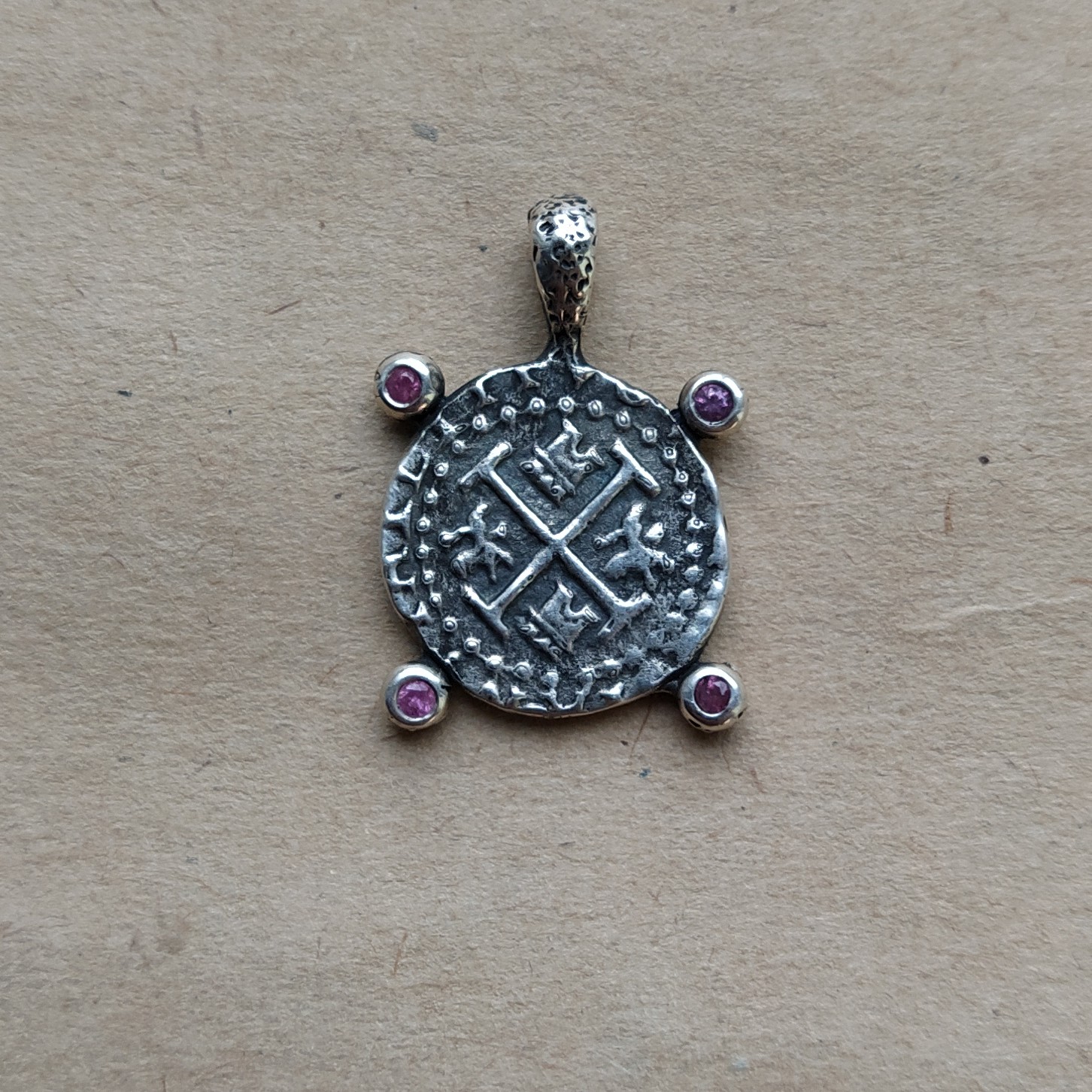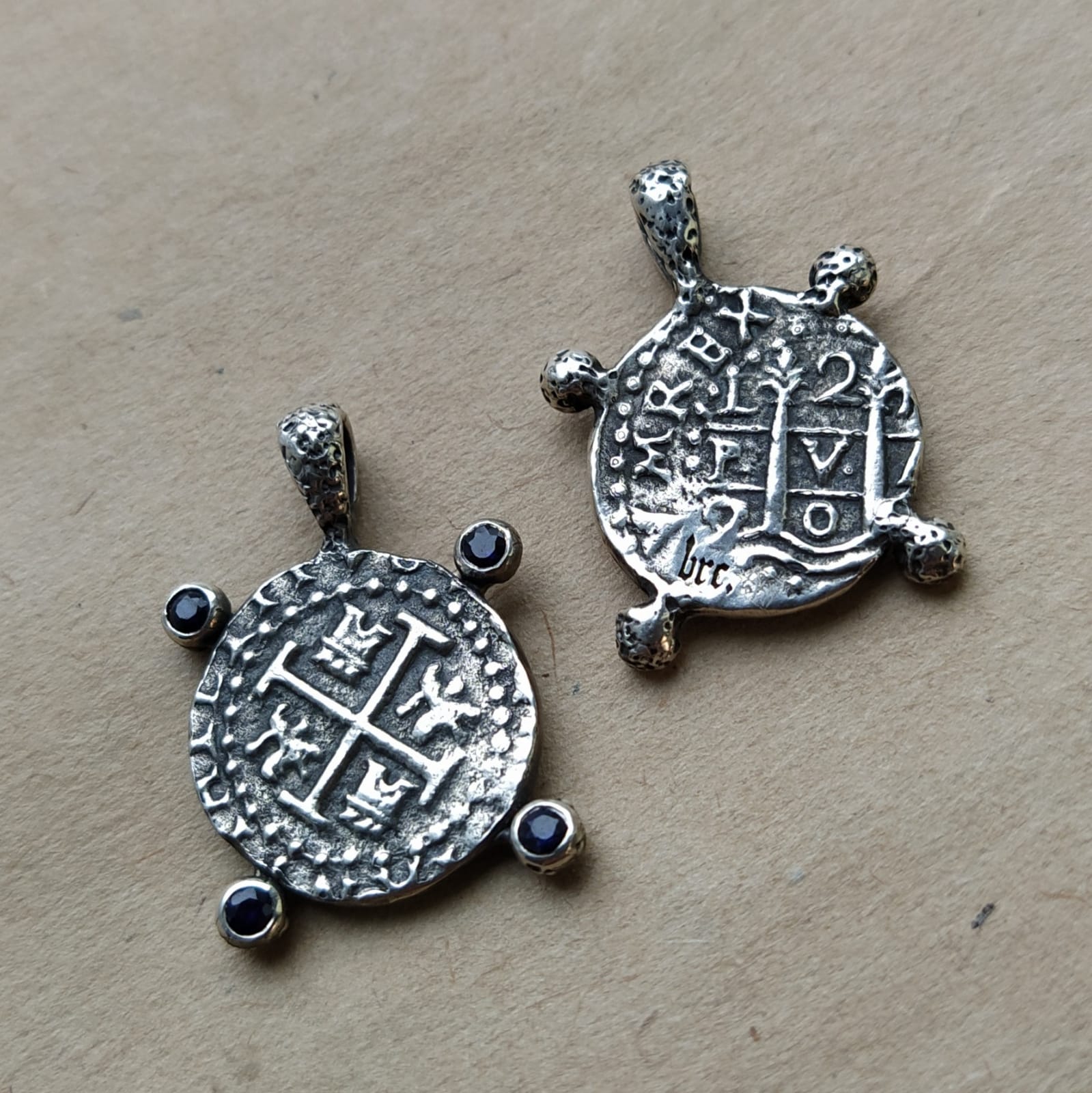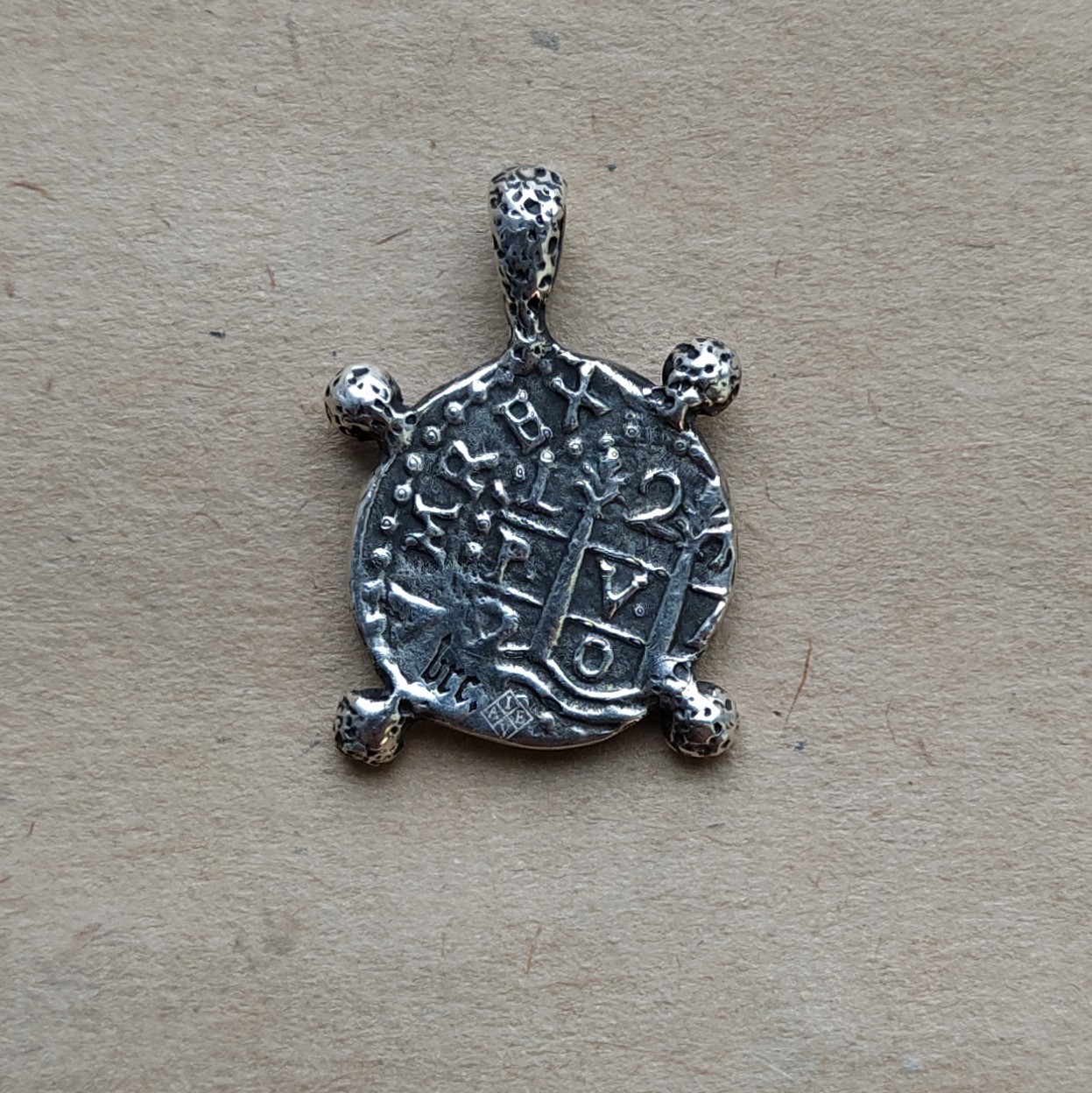static #2
|
|
@ -1,32 +0,0 @@
|
|||
<VirtualHost *:80>
|
||||
# The ServerName directive sets the request scheme, hostname and port that
|
||||
# the server uses to identify itself. This is used when creating
|
||||
# redirection URLs. In the context of virtual hosts, the ServerName
|
||||
# specifies what hostname must appear in the request's Host: header to
|
||||
# match this virtual host. For the default virtual host (this file) this
|
||||
# value is not decisive as it is used as a last resort host regardless.
|
||||
# However, you must set it for any further virtual host explicitly.
|
||||
#ServerName www.example.com
|
||||
|
||||
ServerAdmin webmaster@localhost
|
||||
DocumentRoot /var/www/public
|
||||
|
||||
|
||||
# Available loglevels: trace8, ..., trace1, debug, info, notice, warn,
|
||||
# error, crit, alert, emerg.
|
||||
# It is also possible to configure the loglevel for particular
|
||||
# modules, e.g.
|
||||
#LogLevel info ssl:warn
|
||||
|
||||
ErrorLog ${APACHE_LOG_DIR}/error.log
|
||||
CustomLog ${APACHE_LOG_DIR}/access.log combined
|
||||
|
||||
# For most configuration files from conf-available/, which are
|
||||
# enabled or disabled at a global level, it is possible to
|
||||
# include a line for only one particular virtual host. For example the
|
||||
# following line enables the CGI configuration for this host only
|
||||
# after it has been globally disabled with "a2disconf".
|
||||
#Include conf-available/serve-cgi-bin.conf
|
||||
</VirtualHost>
|
||||
|
||||
# vim: syntax=apache ts=4 sw=4 sts=4 sr noet
|
||||
BIN
Beispielbilder/IMG-20201030-WA0038.jpg
Normal file
|
After 
(image error) Size: 70 KiB |
BIN
Beispielbilder/IMG-20201030-WA0039.jpg
Normal file
|
After 
(image error) Size: 257 KiB |
BIN
Beispielbilder/IMG-20201030-WA0040.jpg
Normal file
|
After 
(image error) Size: 72 KiB |
BIN
Beispielbilder/IMG-20201030-WA0041.jpg
Normal file
|
After 
(image error) Size: 86 KiB |
BIN
Beispielbilder/IMG-20201030-WA0042.jpg
Normal file
|
After 
(image error) Size: 71 KiB |
BIN
Beispielbilder/IMG-20201030-WA0043.jpg
Normal file
|
After 
(image error) Size: 229 KiB |
BIN
Beispielbilder/IMG-20201030-WA0044.jpg
Normal file
|
After 
(image error) Size: 82 KiB |
BIN
Beispielbilder/IMG-20201030-WA0045.jpg
Normal file
|
After 
(image error) Size: 234 KiB |
BIN
Beispielbilder/IMG-20201030-WA0046.jpg
Normal file
|
After 
(image error) Size: 251 KiB |
BIN
Beispielbilder/IMG-20201030-WA0047.jpg
Normal file
|
After 
(image error) Size: 131 KiB |
BIN
Beispielbilder/IMG-20201030-WA0048.jpg
Normal file
|
After 
(image error) Size: 272 KiB |
BIN
Beispielbilder/IMG-20201030-WA0049.jpg
Normal file
|
After 
(image error) Size: 127 KiB |
BIN
Beispielbilder/IMG-20201030-WA0050.jpg
Normal file
|
After 
(image error) Size: 153 KiB |
BIN
Beispielbilder/IMG-20201030-WA0051.jpg
Normal file
|
After 
(image error) Size: 183 KiB |
BIN
Beispielbilder/IMG-20201030-WA0052.jpg
Normal file
|
After 
(image error) Size: 259 KiB |
BIN
Beispielbilder/IMG-20201030-WA0053.jpg
Normal file
|
After 
(image error) Size: 185 KiB |
BIN
Beispielbilder/IMG-20201030-WA0054.jpg
Normal file
|
After 
(image error) Size: 234 KiB |
BIN
Beispielbilder/IMG-20201030-WA0055.jpg
Normal file
|
After 
(image error) Size: 299 KiB |
BIN
Beispielbilder/IMG-20201030-WA0056.jpg
Normal file
|
After 
(image error) Size: 217 KiB |
BIN
Beispielbilder/IMG-20201030-WA0057.jpg
Normal file
|
After 
(image error) Size: 542 KiB |
BIN
Beispielbilder/IMG-20201030-WA0058.jpg
Normal file
|
After 
(image error) Size: 296 KiB |
BIN
Beispielbilder/IMG-20201030-WA0059.jpg
Normal file
|
After 
(image error) Size: 322 KiB |
BIN
Beispielbilder/IMG-20201030-WA0060.jpg
Normal file
|
After 
(image error) Size: 316 KiB |
BIN
Beispielbilder/IMG-20201030-WA0061.jpg
Normal file
|
After 
(image error) Size: 406 KiB |
BIN
Beispielbilder/IMG-20201030-WA0062.jpg
Normal file
|
After 
(image error) Size: 617 KiB |
BIN
Beispielbilder/IMG-20201030-WA0063.jpg
Normal file
|
After 
(image error) Size: 230 KiB |
20
about.php
Normal file
|
|
@ -0,0 +1,20 @@
|
|||
<?php include('header.tpl'); ?>
|
||||
|
||||
<video autoplay playsinline nofullscreen nodownload autoplay loop mute style="pointer-events: none" src="video/Heart.m4v" width="80%" height="auto" ></video>
|
||||
|
||||
<div class="home-about-textbox parallax--box">
|
||||
<h1>THE STORY</h1>
|
||||
<p><i>Here we have the story of brc</i></p>
|
||||
<p><strong>How was brc made?</strong></p>
|
||||
<p>Video? Text?</p>
|
||||
</div>
|
||||
|
||||
<!-- <section class="cta">
|
||||
<div class="container">
|
||||
<h2 class="title title-cta">Order your piece now!
|
||||
</h2>
|
||||
<a href="contacts" class="button button-dark">Order</a>
|
||||
</div>
|
||||
</section> -->
|
||||
|
||||
<?php include('footer.tpl'); ?>
|
||||
|
|
@ -1,15 +0,0 @@
|
|||
root = true
|
||||
|
||||
[*]
|
||||
charset = utf-8
|
||||
end_of_line = lf
|
||||
insert_final_newline = true
|
||||
indent_style = space
|
||||
indent_size = 4
|
||||
trim_trailing_whitespace = true
|
||||
|
||||
[*.md]
|
||||
trim_trailing_whitespace = false
|
||||
|
||||
[*.{yml,yaml}]
|
||||
indent_size = 2
|
||||
|
|
@ -1,46 +0,0 @@
|
|||
APP_NAME=Laravel
|
||||
APP_ENV=local
|
||||
APP_KEY=
|
||||
APP_DEBUG=true
|
||||
APP_URL=http://localhost
|
||||
|
||||
LOG_CHANNEL=stack
|
||||
|
||||
DB_CONNECTION=mysql
|
||||
DB_HOST=127.0.0.1
|
||||
DB_PORT=3306
|
||||
DB_DATABASE=laravel
|
||||
DB_USERNAME=root
|
||||
DB_PASSWORD=
|
||||
|
||||
BROADCAST_DRIVER=log
|
||||
CACHE_DRIVER=file
|
||||
QUEUE_CONNECTION=sync
|
||||
SESSION_DRIVER=file
|
||||
SESSION_LIFETIME=120
|
||||
|
||||
REDIS_HOST=127.0.0.1
|
||||
REDIS_PASSWORD=null
|
||||
REDIS_PORT=6379
|
||||
|
||||
MAIL_MAILER=smtp
|
||||
MAIL_HOST=smtp.mailtrap.io
|
||||
MAIL_PORT=2525
|
||||
MAIL_USERNAME=null
|
||||
MAIL_PASSWORD=null
|
||||
MAIL_ENCRYPTION=null
|
||||
MAIL_FROM_ADDRESS=null
|
||||
MAIL_FROM_NAME="${APP_NAME}"
|
||||
|
||||
AWS_ACCESS_KEY_ID=
|
||||
AWS_SECRET_ACCESS_KEY=
|
||||
AWS_DEFAULT_REGION=us-east-1
|
||||
AWS_BUCKET=
|
||||
|
||||
PUSHER_APP_ID=
|
||||
PUSHER_APP_KEY=
|
||||
PUSHER_APP_SECRET=
|
||||
PUSHER_APP_CLUSTER=mt1
|
||||
|
||||
MIX_PUSHER_APP_KEY="${PUSHER_APP_KEY}"
|
||||
MIX_PUSHER_APP_CLUSTER="${PUSHER_APP_CLUSTER}"
|
||||
5
brc_laravel/brc/.gitattributes
vendored
|
|
@ -1,5 +0,0 @@
|
|||
* text=auto
|
||||
*.css linguist-vendored
|
||||
*.scss linguist-vendored
|
||||
*.js linguist-vendored
|
||||
CHANGELOG.md export-ignore
|
||||
12
brc_laravel/brc/.gitignore
vendored
|
|
@ -1,12 +0,0 @@
|
|||
/node_modules
|
||||
/public/hot
|
||||
/public/storage
|
||||
/storage/*.key
|
||||
/vendor
|
||||
.env
|
||||
.env.backup
|
||||
.phpunit.result.cache
|
||||
Homestead.json
|
||||
Homestead.yaml
|
||||
npm-debug.log
|
||||
yarn-error.log
|
||||
|
|
@ -1,13 +0,0 @@
|
|||
php:
|
||||
preset: laravel
|
||||
disabled:
|
||||
- unused_use
|
||||
finder:
|
||||
not-name:
|
||||
- index.php
|
||||
- server.php
|
||||
js:
|
||||
finder:
|
||||
not-name:
|
||||
- webpack.mix.js
|
||||
css: true
|
||||
|
|
@ -1,85 +0,0 @@
|
|||
<p align="center"><img src="https://res.cloudinary.com/dtfbvvkyp/image/upload/v1566331377/laravel-logolockup-cmyk-red.svg" width="400"></p>
|
||||
|
||||
<p align="center">
|
||||
<a href="https://travis-ci.org/laravel/framework"><img src="https://travis-ci.org/laravel/framework.svg" alt="Build Status"></a>
|
||||
<a href="https://packagist.org/packages/laravel/framework"><img src="https://poser.pugx.org/laravel/framework/d/total.svg" alt="Total Downloads"></a>
|
||||
<a href="https://packagist.org/packages/laravel/framework"><img src="https://poser.pugx.org/laravel/framework/v/stable.svg" alt="Latest Stable Version"></a>
|
||||
<a href="https://packagist.org/packages/laravel/framework"><img src="https://poser.pugx.org/laravel/framework/license.svg" alt="License"></a>
|
||||
</p>
|
||||
|
||||
## About Laravel
|
||||
|
||||
Laravel is a web application framework with expressive, elegant syntax. We believe development must be an enjoyable and creative experience to be truly fulfilling. Laravel takes the pain out of development by easing common tasks used in many web projects, such as:
|
||||
|
||||
- [Simple, fast routing engine](https://laravel.com/docs/routing).
|
||||
- [Powerful dependency injection container](https://laravel.com/docs/container).
|
||||
- Multiple back-ends for [session](https://laravel.com/docs/session) and [cache](https://laravel.com/docs/cache) storage.
|
||||
- Expressive, intuitive [database ORM](https://laravel.com/docs/eloquent).
|
||||
- Database agnostic [schema migrations](https://laravel.com/docs/migrations).
|
||||
- [Robust background job processing](https://laravel.com/docs/queues).
|
||||
- [Real-time event broadcasting](https://laravel.com/docs/broadcasting).
|
||||
|
||||
Laravel is accessible, powerful, and provides tools required for large, robust applications.
|
||||
|
||||
## Learning Laravel
|
||||
|
||||
Laravel has the most extensive and thorough [documentation](https://laravel.com/docs) and video tutorial library of all modern web application frameworks, making it a breeze to get started with the framework.
|
||||
|
||||
If you don't feel like reading, [Laracasts](https://laracasts.com) can help. Laracasts contains over 1500 video tutorials on a range of topics including Laravel, modern PHP, unit testing, and JavaScript. Boost your skills by digging into our comprehensive video library.
|
||||
|
||||
## Laravel Sponsors
|
||||
|
||||
We would like to extend our thanks to the following sponsors for funding Laravel development. If you are interested in becoming a sponsor, please visit the Laravel [Patreon page](https://patreon.com/taylorotwell).
|
||||
|
||||
### Premium Partners
|
||||
|
||||
- **[Vehikl](https://vehikl.com/)**
|
||||
- **[Tighten Co.](https://tighten.co)**
|
||||
- **[Kirschbaum Development Group](https://kirschbaumdevelopment.com)**
|
||||
- **[64 Robots](https://64robots.com)**
|
||||
- **[Cubet Techno Labs](https://cubettech.com)**
|
||||
- **[Cyber-Duck](https://cyber-duck.co.uk)**
|
||||
- **[Many](https://www.many.co.uk)**
|
||||
- **[Webdock, Fast VPS Hosting](https://www.webdock.io/en)**
|
||||
- **[DevSquad](https://devsquad.com)**
|
||||
|
||||
### Community Sponsors
|
||||
|
||||
<a href="https://op.gg"><img src="http://opgg-static.akamaized.net/icon/t.rectangle.png" width="150"></a>
|
||||
|
||||
- [UserInsights](https://userinsights.com)
|
||||
- [Fragrantica](https://www.fragrantica.com)
|
||||
- [SOFTonSOFA](https://softonsofa.com/)
|
||||
- [User10](https://user10.com)
|
||||
- [Soumettre.fr](https://soumettre.fr/)
|
||||
- [CodeBrisk](https://codebrisk.com)
|
||||
- [1Forge](https://1forge.com)
|
||||
- [TECPRESSO](https://tecpresso.co.jp/)
|
||||
- [Runtime Converter](http://runtimeconverter.com/)
|
||||
- [WebL'Agence](https://weblagence.com/)
|
||||
- [Invoice Ninja](https://www.invoiceninja.com)
|
||||
- [iMi digital](https://www.imi-digital.de/)
|
||||
- [Earthlink](https://www.earthlink.ro/)
|
||||
- [Steadfast Collective](https://steadfastcollective.com/)
|
||||
- [We Are The Robots Inc.](https://watr.mx/)
|
||||
- [Understand.io](https://www.understand.io/)
|
||||
- [Abdel Elrafa](https://abdelelrafa.com)
|
||||
- [Hyper Host](https://hyper.host)
|
||||
- [Appoly](https://www.appoly.co.uk)
|
||||
- [云软科技](http://www.yunruan.ltd/)
|
||||
|
||||
## Contributing
|
||||
|
||||
Thank you for considering contributing to the Laravel framework! The contribution guide can be found in the [Laravel documentation](https://laravel.com/docs/contributions).
|
||||
|
||||
## Code of Conduct
|
||||
|
||||
In order to ensure that the Laravel community is welcoming to all, please review and abide by the [Code of Conduct](https://laravel.com/docs/contributions#code-of-conduct).
|
||||
|
||||
## Security Vulnerabilities
|
||||
|
||||
If you discover a security vulnerability within Laravel, please send an e-mail to Taylor Otwell via [taylor@laravel.com](mailto:taylor@laravel.com). All security vulnerabilities will be promptly addressed.
|
||||
|
||||
## License
|
||||
|
||||
The Laravel framework is open-sourced software licensed under the [MIT license](https://opensource.org/licenses/MIT).
|
||||
|
|
@ -1,41 +0,0 @@
|
|||
<?php
|
||||
|
||||
namespace App\Console;
|
||||
|
||||
use Illuminate\Console\Scheduling\Schedule;
|
||||
use Illuminate\Foundation\Console\Kernel as ConsoleKernel;
|
||||
|
||||
class Kernel extends ConsoleKernel
|
||||
{
|
||||
/**
|
||||
* The Artisan commands provided by your application.
|
||||
*
|
||||
* @var array
|
||||
*/
|
||||
protected $commands = [
|
||||
//
|
||||
];
|
||||
|
||||
/**
|
||||
* Define the application's command schedule.
|
||||
*
|
||||
* @param \Illuminate\Console\Scheduling\Schedule $schedule
|
||||
* @return void
|
||||
*/
|
||||
protected function schedule(Schedule $schedule)
|
||||
{
|
||||
// $schedule->command('inspire')->hourly();
|
||||
}
|
||||
|
||||
/**
|
||||
* Register the commands for the application.
|
||||
*
|
||||
* @return void
|
||||
*/
|
||||
protected function commands()
|
||||
{
|
||||
$this->load(__DIR__.'/Commands');
|
||||
|
||||
require base_path('routes/console.php');
|
||||
}
|
||||
}
|
||||
|
|
@ -1,55 +0,0 @@
|
|||
<?php
|
||||
|
||||
namespace App\Exceptions;
|
||||
|
||||
use Illuminate\Foundation\Exceptions\Handler as ExceptionHandler;
|
||||
use Throwable;
|
||||
|
||||
class Handler extends ExceptionHandler
|
||||
{
|
||||
/**
|
||||
* A list of the exception types that are not reported.
|
||||
*
|
||||
* @var array
|
||||
*/
|
||||
protected $dontReport = [
|
||||
//
|
||||
];
|
||||
|
||||
/**
|
||||
* A list of the inputs that are never flashed for validation exceptions.
|
||||
*
|
||||
* @var array
|
||||
*/
|
||||
protected $dontFlash = [
|
||||
'password',
|
||||
'password_confirmation',
|
||||
];
|
||||
|
||||
/**
|
||||
* Report or log an exception.
|
||||
*
|
||||
* @param \Throwable $exception
|
||||
* @return void
|
||||
*
|
||||
* @throws \Exception
|
||||
*/
|
||||
public function report(Throwable $exception)
|
||||
{
|
||||
parent::report($exception);
|
||||
}
|
||||
|
||||
/**
|
||||
* Render an exception into an HTTP response.
|
||||
*
|
||||
* @param \Illuminate\Http\Request $request
|
||||
* @param \Throwable $exception
|
||||
* @return \Symfony\Component\HttpFoundation\Response
|
||||
*
|
||||
* @throws \Throwable
|
||||
*/
|
||||
public function render($request, Throwable $exception)
|
||||
{
|
||||
return parent::render($request, $exception);
|
||||
}
|
||||
}
|
||||
|
|
@ -1,13 +0,0 @@
|
|||
<?php
|
||||
|
||||
namespace App\Http\Controllers;
|
||||
|
||||
use Illuminate\Foundation\Auth\Access\AuthorizesRequests;
|
||||
use Illuminate\Foundation\Bus\DispatchesJobs;
|
||||
use Illuminate\Foundation\Validation\ValidatesRequests;
|
||||
use Illuminate\Routing\Controller as BaseController;
|
||||
|
||||
class Controller extends BaseController
|
||||
{
|
||||
use AuthorizesRequests, DispatchesJobs, ValidatesRequests;
|
||||
}
|
||||
|
|
@ -1,41 +0,0 @@
|
|||
<?php
|
||||
|
||||
namespace App\Http\Controllers;
|
||||
|
||||
use App\Http\Controllers\Controller;
|
||||
use App\Product;
|
||||
use App\Products;
|
||||
|
||||
class GeneralController extends Controller
|
||||
{
|
||||
/**
|
||||
* Show the profile for the given user.
|
||||
*
|
||||
* @param int $id
|
||||
* @return View
|
||||
*/
|
||||
|
||||
|
||||
public function show()
|
||||
{
|
||||
$products = Products::all();
|
||||
|
||||
$response = file_get_contents('https://instagram.com/bricabracomania_metalworks/?__a=1');
|
||||
|
||||
$data = json_decode($response);
|
||||
|
||||
$pic_raw_data = $data->graphql->user->edge_owner_to_timeline_media->edges;
|
||||
|
||||
$pic_data = [];
|
||||
|
||||
for ($x = 0; $x <= count($pic_raw_data) - 6; $x++) {
|
||||
$edge = $pic_raw_data[$x];
|
||||
|
||||
$actual_pic_url = $edge->node->display_url;
|
||||
|
||||
array_push($pic_data, $actual_pic_url);
|
||||
}
|
||||
|
||||
return view('home')->with('products', $products)->with('pic_data', $pic_data);
|
||||
}
|
||||
}
|
||||
|
|
@ -1,63 +0,0 @@
|
|||
<?php
|
||||
|
||||
namespace App\Http\Controllers;
|
||||
|
||||
|
||||
use Illuminate\Http\Request;
|
||||
use App\Http\Requests;
|
||||
|
||||
|
||||
class ImageController extends Controller
|
||||
{
|
||||
|
||||
|
||||
/**
|
||||
* Show the form for creating a new resource.
|
||||
*
|
||||
* @return \Illuminate\Http\Response
|
||||
*/
|
||||
public function resizeImage()
|
||||
{
|
||||
return view('resizeImage');
|
||||
}
|
||||
|
||||
|
||||
/**
|
||||
* Show the form for creating a new resource.
|
||||
*
|
||||
* @return \Illuminate\Http\Response
|
||||
*/
|
||||
public function resizeImagePost(Request $request)
|
||||
{
|
||||
$this->validate($request, [
|
||||
'title' => 'required',
|
||||
'image' => 'required|image|mimes:jpeg,png,jpg,gif,svg|max:2048',
|
||||
]);
|
||||
|
||||
|
||||
$image = $request->file('image');
|
||||
$input['imagename'] = time().'.'.$image->getClientOriginalExtension();
|
||||
|
||||
|
||||
$destinationPath = public_path('/thumbnail');
|
||||
$img = Image::make($image->getRealPath());
|
||||
$img->resize(100, 100, function ($constraint) {
|
||||
$constraint->aspectRatio();
|
||||
})->save($destinationPath.'/'.$input['imagename']);
|
||||
|
||||
|
||||
$destinationPath = public_path('/images');
|
||||
$image->move($destinationPath, $input['imagename']);
|
||||
|
||||
|
||||
$this->postImage->add($input);
|
||||
|
||||
|
||||
return back()
|
||||
->with('success','Image Upload successful')
|
||||
->with('imageName',$input['imagename']);
|
||||
}
|
||||
|
||||
|
||||
}
|
||||
|
||||
|
|
@ -1,71 +0,0 @@
|
|||
<?php
|
||||
|
||||
// namespace App\Http\Controllers;
|
||||
|
||||
// use Illuminate\Http\Request;
|
||||
|
||||
// class ProductsController extends Controller
|
||||
{
|
||||
//
|
||||
}
|
||||
|
||||
namespace App\Http\Controllers;
|
||||
|
||||
|
||||
use Illuminate\Http\Request;
|
||||
use App\Products;
|
||||
|
||||
class ProductsController extends Controller
|
||||
{
|
||||
|
||||
|
||||
/**
|
||||
* Listing Of images gallery
|
||||
*
|
||||
* @return \Illuminate\Http\Response
|
||||
*/
|
||||
public function index()
|
||||
{
|
||||
$images = Products::get();
|
||||
return view('projects') -> with ('images', $images);
|
||||
}
|
||||
|
||||
|
||||
/**
|
||||
* Upload image function
|
||||
*
|
||||
* @return \Illuminate\Http\Response
|
||||
*/
|
||||
public function upload(Request $request)
|
||||
{
|
||||
$this->validate($request, [
|
||||
'title' => 'required',
|
||||
'image' => 'required|image|mimes:jpeg,png,jpg,gif,svg|max:2048',
|
||||
]);
|
||||
|
||||
|
||||
$input['image'] = time().'.'.$request->image->getClientOriginalExtension();
|
||||
$request->image->move(public_path('images'), $input['image']);
|
||||
|
||||
|
||||
$input['title'] = $request->title;
|
||||
Products::create($input);
|
||||
|
||||
|
||||
return back()
|
||||
->with('success','Image Uploaded successfully.');
|
||||
}
|
||||
|
||||
|
||||
/**
|
||||
* Remove Image function
|
||||
*
|
||||
* @return \Illuminate\Http\Response
|
||||
*/
|
||||
public function destroy($id)
|
||||
{
|
||||
Products::find($id)->delete();
|
||||
return back()
|
||||
->with('success','Image removed successfully.');
|
||||
}
|
||||
}
|
||||
|
|
@ -1,67 +0,0 @@
|
|||
<?php
|
||||
|
||||
namespace App\Http;
|
||||
|
||||
use Illuminate\Foundation\Http\Kernel as HttpKernel;
|
||||
|
||||
class Kernel extends HttpKernel
|
||||
{
|
||||
/**
|
||||
* The application's global HTTP middleware stack.
|
||||
*
|
||||
* These middleware are run during every request to your application.
|
||||
*
|
||||
* @var array
|
||||
*/
|
||||
protected $middleware = [
|
||||
// \App\Http\Middleware\TrustHosts::class,
|
||||
\App\Http\Middleware\TrustProxies::class,
|
||||
\Fruitcake\Cors\HandleCors::class,
|
||||
\App\Http\Middleware\CheckForMaintenanceMode::class,
|
||||
\Illuminate\Foundation\Http\Middleware\ValidatePostSize::class,
|
||||
\App\Http\Middleware\TrimStrings::class,
|
||||
\Illuminate\Foundation\Http\Middleware\ConvertEmptyStringsToNull::class,
|
||||
];
|
||||
|
||||
/**
|
||||
* The application's route middleware groups.
|
||||
*
|
||||
* @var array
|
||||
*/
|
||||
protected $middlewareGroups = [
|
||||
'web' => [
|
||||
\App\Http\Middleware\EncryptCookies::class,
|
||||
\Illuminate\Cookie\Middleware\AddQueuedCookiesToResponse::class,
|
||||
\Illuminate\Session\Middleware\StartSession::class,
|
||||
// \Illuminate\Session\Middleware\AuthenticateSession::class,
|
||||
\Illuminate\View\Middleware\ShareErrorsFromSession::class,
|
||||
\App\Http\Middleware\VerifyCsrfToken::class,
|
||||
\Illuminate\Routing\Middleware\SubstituteBindings::class,
|
||||
],
|
||||
|
||||
'api' => [
|
||||
'throttle:60,1',
|
||||
\Illuminate\Routing\Middleware\SubstituteBindings::class,
|
||||
],
|
||||
];
|
||||
|
||||
/**
|
||||
* The application's route middleware.
|
||||
*
|
||||
* These middleware may be assigned to groups or used individually.
|
||||
*
|
||||
* @var array
|
||||
*/
|
||||
protected $routeMiddleware = [
|
||||
'auth' => \App\Http\Middleware\Authenticate::class,
|
||||
'auth.basic' => \Illuminate\Auth\Middleware\AuthenticateWithBasicAuth::class,
|
||||
'bindings' => \Illuminate\Routing\Middleware\SubstituteBindings::class,
|
||||
'cache.headers' => \Illuminate\Http\Middleware\SetCacheHeaders::class,
|
||||
'can' => \Illuminate\Auth\Middleware\Authorize::class,
|
||||
'guest' => \App\Http\Middleware\RedirectIfAuthenticated::class,
|
||||
'password.confirm' => \Illuminate\Auth\Middleware\RequirePassword::class,
|
||||
'signed' => \Illuminate\Routing\Middleware\ValidateSignature::class,
|
||||
'throttle' => \Illuminate\Routing\Middleware\ThrottleRequests::class,
|
||||
'verified' => \Illuminate\Auth\Middleware\EnsureEmailIsVerified::class,
|
||||
];
|
||||
}
|
||||
|
|
@ -1,21 +0,0 @@
|
|||
<?php
|
||||
|
||||
namespace App\Http\Middleware;
|
||||
|
||||
use Illuminate\Auth\Middleware\Authenticate as Middleware;
|
||||
|
||||
class Authenticate extends Middleware
|
||||
{
|
||||
/**
|
||||
* Get the path the user should be redirected to when they are not authenticated.
|
||||
*
|
||||
* @param \Illuminate\Http\Request $request
|
||||
* @return string|null
|
||||
*/
|
||||
protected function redirectTo($request)
|
||||
{
|
||||
if (! $request->expectsJson()) {
|
||||
return route('login');
|
||||
}
|
||||
}
|
||||
}
|
||||
|
|
@ -1,17 +0,0 @@
|
|||
<?php
|
||||
|
||||
namespace App\Http\Middleware;
|
||||
|
||||
use Illuminate\Foundation\Http\Middleware\CheckForMaintenanceMode as Middleware;
|
||||
|
||||
class CheckForMaintenanceMode extends Middleware
|
||||
{
|
||||
/**
|
||||
* The URIs that should be reachable while maintenance mode is enabled.
|
||||
*
|
||||
* @var array
|
||||
*/
|
||||
protected $except = [
|
||||
//
|
||||
];
|
||||
}
|
||||
|
|
@ -1,17 +0,0 @@
|
|||
<?php
|
||||
|
||||
namespace App\Http\Middleware;
|
||||
|
||||
use Illuminate\Cookie\Middleware\EncryptCookies as Middleware;
|
||||
|
||||
class EncryptCookies extends Middleware
|
||||
{
|
||||
/**
|
||||
* The names of the cookies that should not be encrypted.
|
||||
*
|
||||
* @var array
|
||||
*/
|
||||
protected $except = [
|
||||
//
|
||||
];
|
||||
}
|
||||
|
|
@ -1,27 +0,0 @@
|
|||
<?php
|
||||
|
||||
namespace App\Http\Middleware;
|
||||
|
||||
use App\Providers\RouteServiceProvider;
|
||||
use Closure;
|
||||
use Illuminate\Support\Facades\Auth;
|
||||
|
||||
class RedirectIfAuthenticated
|
||||
{
|
||||
/**
|
||||
* Handle an incoming request.
|
||||
*
|
||||
* @param \Illuminate\Http\Request $request
|
||||
* @param \Closure $next
|
||||
* @param string|null $guard
|
||||
* @return mixed
|
||||
*/
|
||||
public function handle($request, Closure $next, $guard = null)
|
||||
{
|
||||
if (Auth::guard($guard)->check()) {
|
||||
return redirect(RouteServiceProvider::HOME);
|
||||
}
|
||||
|
||||
return $next($request);
|
||||
}
|
||||
}
|
||||
|
|
@ -1,18 +0,0 @@
|
|||
<?php
|
||||
|
||||
namespace App\Http\Middleware;
|
||||
|
||||
use Illuminate\Foundation\Http\Middleware\TrimStrings as Middleware;
|
||||
|
||||
class TrimStrings extends Middleware
|
||||
{
|
||||
/**
|
||||
* The names of the attributes that should not be trimmed.
|
||||
*
|
||||
* @var array
|
||||
*/
|
||||
protected $except = [
|
||||
'password',
|
||||
'password_confirmation',
|
||||
];
|
||||
}
|
||||
|
|
@ -1,20 +0,0 @@
|
|||
<?php
|
||||
|
||||
namespace App\Http\Middleware;
|
||||
|
||||
use Illuminate\Http\Middleware\TrustHosts as Middleware;
|
||||
|
||||
class TrustHosts extends Middleware
|
||||
{
|
||||
/**
|
||||
* Get the host patterns that should be trusted.
|
||||
*
|
||||
* @return array
|
||||
*/
|
||||
public function hosts()
|
||||
{
|
||||
return [
|
||||
$this->allSubdomainsOfApplicationUrl(),
|
||||
];
|
||||
}
|
||||
}
|
||||
|
|
@ -1,23 +0,0 @@
|
|||
<?php
|
||||
|
||||
namespace App\Http\Middleware;
|
||||
|
||||
use Fideloper\Proxy\TrustProxies as Middleware;
|
||||
use Illuminate\Http\Request;
|
||||
|
||||
class TrustProxies extends Middleware
|
||||
{
|
||||
/**
|
||||
* The trusted proxies for this application.
|
||||
*
|
||||
* @var array|string|null
|
||||
*/
|
||||
protected $proxies;
|
||||
|
||||
/**
|
||||
* The headers that should be used to detect proxies.
|
||||
*
|
||||
* @var int
|
||||
*/
|
||||
protected $headers = Request::HEADER_X_FORWARDED_ALL;
|
||||
}
|
||||
|
|
@ -1,17 +0,0 @@
|
|||
<?php
|
||||
|
||||
namespace App\Http\Middleware;
|
||||
|
||||
use Illuminate\Foundation\Http\Middleware\VerifyCsrfToken as Middleware;
|
||||
|
||||
class VerifyCsrfToken extends Middleware
|
||||
{
|
||||
/**
|
||||
* The URIs that should be excluded from CSRF verification.
|
||||
*
|
||||
* @var array
|
||||
*/
|
||||
protected $except = [
|
||||
//
|
||||
];
|
||||
}
|
||||
|
|
@ -1,10 +0,0 @@
|
|||
<?php
|
||||
|
||||
namespace App;
|
||||
|
||||
use Illuminate\Database\Eloquent\Model;
|
||||
|
||||
class Products extends Model
|
||||
{
|
||||
protected $table = 'products';
|
||||
}
|
||||
|
|
@ -1,28 +0,0 @@
|
|||
<?php
|
||||
|
||||
namespace App\Providers;
|
||||
|
||||
use Illuminate\Support\ServiceProvider;
|
||||
|
||||
class AppServiceProvider extends ServiceProvider
|
||||
{
|
||||
/**
|
||||
* Register any application services.
|
||||
*
|
||||
* @return void
|
||||
*/
|
||||
public function register()
|
||||
{
|
||||
//
|
||||
}
|
||||
|
||||
/**
|
||||
* Bootstrap any application services.
|
||||
*
|
||||
* @return void
|
||||
*/
|
||||
public function boot()
|
||||
{
|
||||
//
|
||||
}
|
||||
}
|
||||
|
|
@ -1,30 +0,0 @@
|
|||
<?php
|
||||
|
||||
namespace App\Providers;
|
||||
|
||||
use Illuminate\Foundation\Support\Providers\AuthServiceProvider as ServiceProvider;
|
||||
use Illuminate\Support\Facades\Gate;
|
||||
|
||||
class AuthServiceProvider extends ServiceProvider
|
||||
{
|
||||
/**
|
||||
* The policy mappings for the application.
|
||||
*
|
||||
* @var array
|
||||
*/
|
||||
protected $policies = [
|
||||
// 'App\Model' => 'App\Policies\ModelPolicy',
|
||||
];
|
||||
|
||||
/**
|
||||
* Register any authentication / authorization services.
|
||||
*
|
||||
* @return void
|
||||
*/
|
||||
public function boot()
|
||||
{
|
||||
$this->registerPolicies();
|
||||
|
||||
//
|
||||
}
|
||||
}
|
||||
|
|
@ -1,21 +0,0 @@
|
|||
<?php
|
||||
|
||||
namespace App\Providers;
|
||||
|
||||
use Illuminate\Support\Facades\Broadcast;
|
||||
use Illuminate\Support\ServiceProvider;
|
||||
|
||||
class BroadcastServiceProvider extends ServiceProvider
|
||||
{
|
||||
/**
|
||||
* Bootstrap any application services.
|
||||
*
|
||||
* @return void
|
||||
*/
|
||||
public function boot()
|
||||
{
|
||||
Broadcast::routes();
|
||||
|
||||
require base_path('routes/channels.php');
|
||||
}
|
||||
}
|
||||
|
|
@ -1,34 +0,0 @@
|
|||
<?php
|
||||
|
||||
namespace App\Providers;
|
||||
|
||||
use Illuminate\Auth\Events\Registered;
|
||||
use Illuminate\Auth\Listeners\SendEmailVerificationNotification;
|
||||
use Illuminate\Foundation\Support\Providers\EventServiceProvider as ServiceProvider;
|
||||
use Illuminate\Support\Facades\Event;
|
||||
|
||||
class EventServiceProvider extends ServiceProvider
|
||||
{
|
||||
/**
|
||||
* The event listener mappings for the application.
|
||||
*
|
||||
* @var array
|
||||
*/
|
||||
protected $listen = [
|
||||
Registered::class => [
|
||||
SendEmailVerificationNotification::class,
|
||||
],
|
||||
];
|
||||
|
||||
/**
|
||||
* Register any events for your application.
|
||||
*
|
||||
* @return void
|
||||
*/
|
||||
public function boot()
|
||||
{
|
||||
parent::boot();
|
||||
|
||||
//
|
||||
}
|
||||
}
|
||||
|
|
@ -1,80 +0,0 @@
|
|||
<?php
|
||||
|
||||
namespace App\Providers;
|
||||
|
||||
use Illuminate\Foundation\Support\Providers\RouteServiceProvider as ServiceProvider;
|
||||
use Illuminate\Support\Facades\Route;
|
||||
|
||||
class RouteServiceProvider extends ServiceProvider
|
||||
{
|
||||
/**
|
||||
* This namespace is applied to your controller routes.
|
||||
*
|
||||
* In addition, it is set as the URL generator's root namespace.
|
||||
*
|
||||
* @var string
|
||||
*/
|
||||
protected $namespace = 'App\Http\Controllers';
|
||||
|
||||
/**
|
||||
* The path to the "home" route for your application.
|
||||
*
|
||||
* @var string
|
||||
*/
|
||||
public const HOME = '/home';
|
||||
|
||||
/**
|
||||
* Define your route model bindings, pattern filters, etc.
|
||||
*
|
||||
* @return void
|
||||
*/
|
||||
public function boot()
|
||||
{
|
||||
//
|
||||
|
||||
parent::boot();
|
||||
}
|
||||
|
||||
/**
|
||||
* Define the routes for the application.
|
||||
*
|
||||
* @return void
|
||||
*/
|
||||
public function map()
|
||||
{
|
||||
$this->mapApiRoutes();
|
||||
|
||||
$this->mapWebRoutes();
|
||||
|
||||
//
|
||||
}
|
||||
|
||||
/**
|
||||
* Define the "web" routes for the application.
|
||||
*
|
||||
* These routes all receive session state, CSRF protection, etc.
|
||||
*
|
||||
* @return void
|
||||
*/
|
||||
protected function mapWebRoutes()
|
||||
{
|
||||
Route::middleware('web')
|
||||
->namespace($this->namespace)
|
||||
->group(base_path('routes/web.php'));
|
||||
}
|
||||
|
||||
/**
|
||||
* Define the "api" routes for the application.
|
||||
*
|
||||
* These routes are typically stateless.
|
||||
*
|
||||
* @return void
|
||||
*/
|
||||
protected function mapApiRoutes()
|
||||
{
|
||||
Route::prefix('api')
|
||||
->middleware('api')
|
||||
->namespace($this->namespace)
|
||||
->group(base_path('routes/api.php'));
|
||||
}
|
||||
}
|
||||
|
|
@ -1,39 +0,0 @@
|
|||
<?php
|
||||
|
||||
namespace App;
|
||||
|
||||
use Illuminate\Contracts\Auth\MustVerifyEmail;
|
||||
use Illuminate\Foundation\Auth\User as Authenticatable;
|
||||
use Illuminate\Notifications\Notifiable;
|
||||
|
||||
class User extends Authenticatable
|
||||
{
|
||||
use Notifiable;
|
||||
|
||||
/**
|
||||
* The attributes that are mass assignable.
|
||||
*
|
||||
* @var array
|
||||
*/
|
||||
protected $fillable = [
|
||||
'name', 'email', 'password',
|
||||
];
|
||||
|
||||
/**
|
||||
* The attributes that should be hidden for arrays.
|
||||
*
|
||||
* @var array
|
||||
*/
|
||||
protected $hidden = [
|
||||
'password', 'remember_token',
|
||||
];
|
||||
|
||||
/**
|
||||
* The attributes that should be cast to native types.
|
||||
*
|
||||
* @var array
|
||||
*/
|
||||
protected $casts = [
|
||||
'email_verified_at' => 'datetime',
|
||||
];
|
||||
}
|
||||
|
|
@ -1,53 +0,0 @@
|
|||
#!/usr/bin/env php
|
||||
<?php
|
||||
|
||||
define('LARAVEL_START', microtime(true));
|
||||
|
||||
/*
|
||||
|--------------------------------------------------------------------------
|
||||
| Register The Auto Loader
|
||||
|--------------------------------------------------------------------------
|
||||
|
|
||||
| Composer provides a convenient, automatically generated class loader
|
||||
| for our application. We just need to utilize it! We'll require it
|
||||
| into the script here so that we do not have to worry about the
|
||||
| loading of any our classes "manually". Feels great to relax.
|
||||
|
|
||||
*/
|
||||
|
||||
require __DIR__.'/vendor/autoload.php';
|
||||
|
||||
$app = require_once __DIR__.'/bootstrap/app.php';
|
||||
|
||||
/*
|
||||
|--------------------------------------------------------------------------
|
||||
| Run The Artisan Application
|
||||
|--------------------------------------------------------------------------
|
||||
|
|
||||
| When we run the console application, the current CLI command will be
|
||||
| executed in this console and the response sent back to a terminal
|
||||
| or another output device for the developers. Here goes nothing!
|
||||
|
|
||||
*/
|
||||
|
||||
$kernel = $app->make(Illuminate\Contracts\Console\Kernel::class);
|
||||
|
||||
$status = $kernel->handle(
|
||||
$input = new Symfony\Component\Console\Input\ArgvInput,
|
||||
new Symfony\Component\Console\Output\ConsoleOutput
|
||||
);
|
||||
|
||||
/*
|
||||
|--------------------------------------------------------------------------
|
||||
| Shutdown The Application
|
||||
|--------------------------------------------------------------------------
|
||||
|
|
||||
| Once Artisan has finished running, we will fire off the shutdown events
|
||||
| so that any final work may be done by the application before we shut
|
||||
| down the process. This is the last thing to happen to the request.
|
||||
|
|
||||
*/
|
||||
|
||||
$kernel->terminate($input, $status);
|
||||
|
||||
exit($status);
|
||||
|
|
@ -1,55 +0,0 @@
|
|||
<?php
|
||||
|
||||
/*
|
||||
|--------------------------------------------------------------------------
|
||||
| Create The Application
|
||||
|--------------------------------------------------------------------------
|
||||
|
|
||||
| The first thing we will do is create a new Laravel application instance
|
||||
| which serves as the "glue" for all the components of Laravel, and is
|
||||
| the IoC container for the system binding all of the various parts.
|
||||
|
|
||||
*/
|
||||
|
||||
$app = new Illuminate\Foundation\Application(
|
||||
$_ENV['APP_BASE_PATH'] ?? dirname(__DIR__)
|
||||
);
|
||||
|
||||
/*
|
||||
|--------------------------------------------------------------------------
|
||||
| Bind Important Interfaces
|
||||
|--------------------------------------------------------------------------
|
||||
|
|
||||
| Next, we need to bind some important interfaces into the container so
|
||||
| we will be able to resolve them when needed. The kernels serve the
|
||||
| incoming requests to this application from both the web and CLI.
|
||||
|
|
||||
*/
|
||||
|
||||
$app->singleton(
|
||||
Illuminate\Contracts\Http\Kernel::class,
|
||||
App\Http\Kernel::class
|
||||
);
|
||||
|
||||
$app->singleton(
|
||||
Illuminate\Contracts\Console\Kernel::class,
|
||||
App\Console\Kernel::class
|
||||
);
|
||||
|
||||
$app->singleton(
|
||||
Illuminate\Contracts\Debug\ExceptionHandler::class,
|
||||
App\Exceptions\Handler::class
|
||||
);
|
||||
|
||||
/*
|
||||
|--------------------------------------------------------------------------
|
||||
| Return The Application
|
||||
|--------------------------------------------------------------------------
|
||||
|
|
||||
| This script returns the application instance. The instance is given to
|
||||
| the calling script so we can separate the building of the instances
|
||||
| from the actual running of the application and sending responses.
|
||||
|
|
||||
*/
|
||||
|
||||
return $app;
|
||||
2
brc_laravel/brc/bootstrap/cache/.gitignore
vendored
|
|
@ -1,2 +0,0 @@
|
|||
*
|
||||
!.gitignore
|
||||
|
|
@ -1,65 +0,0 @@
|
|||
{
|
||||
"name": "laravel/laravel",
|
||||
"type": "project",
|
||||
"description": "The Laravel Framework.",
|
||||
"keywords": [
|
||||
"framework",
|
||||
"laravel"
|
||||
],
|
||||
"license": "MIT",
|
||||
"require": {
|
||||
"php": "^7.2.5",
|
||||
"dymantic/laravel-instagram-feed": "^2.3",
|
||||
"fideloper/proxy": "^4.2",
|
||||
"fruitcake/laravel-cors": "^2.0",
|
||||
"guzzlehttp/guzzle": "^6.3",
|
||||
"intervention/image": "^2.5",
|
||||
"laravel/framework": "^7.0",
|
||||
"laravel/tinker": "^2.0"
|
||||
},
|
||||
"require-dev": {
|
||||
"facade/ignition": "^2.0",
|
||||
"fzaninotto/faker": "^1.9.1",
|
||||
"mockery/mockery": "^1.3.1",
|
||||
"nunomaduro/collision": "^4.1",
|
||||
"phpunit/phpunit": "^8.5"
|
||||
},
|
||||
"config": {
|
||||
"optimize-autoloader": true,
|
||||
"preferred-install": "dist",
|
||||
"sort-packages": true
|
||||
},
|
||||
"extra": {
|
||||
"laravel": {
|
||||
"dont-discover": []
|
||||
}
|
||||
},
|
||||
"autoload": {
|
||||
"psr-4": {
|
||||
"App\\": "app/"
|
||||
},
|
||||
"classmap": [
|
||||
"database/seeds",
|
||||
"database/factories"
|
||||
]
|
||||
},
|
||||
"autoload-dev": {
|
||||
"psr-4": {
|
||||
"Tests\\": "tests/"
|
||||
}
|
||||
},
|
||||
"minimum-stability": "dev",
|
||||
"prefer-stable": true,
|
||||
"scripts": {
|
||||
"post-autoload-dump": [
|
||||
"Illuminate\\Foundation\\ComposerScripts::postAutoloadDump",
|
||||
"@php artisan package:discover --ansi"
|
||||
],
|
||||
"post-root-package-install": [
|
||||
"@php -r \"file_exists('.env') || copy('.env.example', '.env');\""
|
||||
],
|
||||
"post-create-project-cmd": [
|
||||
"@php artisan key:generate --ansi"
|
||||
]
|
||||
}
|
||||
}
|
||||
6433
brc_laravel/brc/composer.lock
generated
|
|
@ -1,235 +0,0 @@
|
|||
<?php
|
||||
|
||||
return [
|
||||
|
||||
/*
|
||||
|--------------------------------------------------------------------------
|
||||
| Application Name
|
||||
|--------------------------------------------------------------------------
|
||||
|
|
||||
| This value is the name of your application. This value is used when the
|
||||
| framework needs to place the application's name in a notification or
|
||||
| any other location as required by the application or its packages.
|
||||
|
|
||||
*/
|
||||
|
||||
'name' => env('APP_NAME', 'Laravel'),
|
||||
|
||||
/*
|
||||
|--------------------------------------------------------------------------
|
||||
| Application Environment
|
||||
|--------------------------------------------------------------------------
|
||||
|
|
||||
| This value determines the "environment" your application is currently
|
||||
| running in. This may determine how you prefer to configure various
|
||||
| services the application utilizes. Set this in your ".env" file.
|
||||
|
|
||||
*/
|
||||
|
||||
'env' => env('APP_ENV', 'production'),
|
||||
|
||||
/*
|
||||
|--------------------------------------------------------------------------
|
||||
| Application Debug Mode
|
||||
|--------------------------------------------------------------------------
|
||||
|
|
||||
| When your application is in debug mode, detailed error messages with
|
||||
| stack traces will be shown on every error that occurs within your
|
||||
| application. If disabled, a simple generic error page is shown.
|
||||
|
|
||||
*/
|
||||
|
||||
'debug' => (bool) env('APP_DEBUG', false),
|
||||
|
||||
/*
|
||||
|--------------------------------------------------------------------------
|
||||
| Application URL
|
||||
|--------------------------------------------------------------------------
|
||||
|
|
||||
| This URL is used by the console to properly generate URLs when using
|
||||
| the Artisan command line tool. You should set this to the root of
|
||||
| your application so that it is used when running Artisan tasks.
|
||||
|
|
||||
*/
|
||||
|
||||
'url' => env('APP_URL', 'http://localhost'),
|
||||
|
||||
'asset_url' => env('ASSET_URL', null),
|
||||
|
||||
/*
|
||||
|--------------------------------------------------------------------------
|
||||
| Application Timezone
|
||||
|--------------------------------------------------------------------------
|
||||
|
|
||||
| Here you may specify the default timezone for your application, which
|
||||
| will be used by the PHP date and date-time functions. We have gone
|
||||
| ahead and set this to a sensible default for you out of the box.
|
||||
|
|
||||
*/
|
||||
|
||||
'timezone' => 'UTC',
|
||||
|
||||
/*
|
||||
|--------------------------------------------------------------------------
|
||||
| Application Locale Configuration
|
||||
|--------------------------------------------------------------------------
|
||||
|
|
||||
| The application locale determines the default locale that will be used
|
||||
| by the translation service provider. You are free to set this value
|
||||
| to any of the locales which will be supported by the application.
|
||||
|
|
||||
*/
|
||||
|
||||
'locale' => 'en',
|
||||
|
||||
/*
|
||||
|--------------------------------------------------------------------------
|
||||
| Application Fallback Locale
|
||||
|--------------------------------------------------------------------------
|
||||
|
|
||||
| The fallback locale determines the locale to use when the current one
|
||||
| is not available. You may change the value to correspond to any of
|
||||
| the language folders that are provided through your application.
|
||||
|
|
||||
*/
|
||||
|
||||
'fallback_locale' => 'en',
|
||||
|
||||
/*
|
||||
|--------------------------------------------------------------------------
|
||||
| Faker Locale
|
||||
|--------------------------------------------------------------------------
|
||||
|
|
||||
| This locale will be used by the Faker PHP library when generating fake
|
||||
| data for your database seeds. For example, this will be used to get
|
||||
| localized telephone numbers, street address information and more.
|
||||
|
|
||||
*/
|
||||
|
||||
'faker_locale' => 'en_US',
|
||||
|
||||
/*
|
||||
|--------------------------------------------------------------------------
|
||||
| Encryption Key
|
||||
|--------------------------------------------------------------------------
|
||||
|
|
||||
| This key is used by the Illuminate encrypter service and should be set
|
||||
| to a random, 32 character string, otherwise these encrypted strings
|
||||
| will not be safe. Please do this before deploying an application!
|
||||
|
|
||||
*/
|
||||
|
||||
'key' => env('APP_KEY'),
|
||||
|
||||
'cipher' => 'AES-256-CBC',
|
||||
|
||||
/*
|
||||
|--------------------------------------------------------------------------
|
||||
| Autoloaded Service Providers
|
||||
|--------------------------------------------------------------------------
|
||||
|
|
||||
| The service providers listed here will be automatically loaded on the
|
||||
| request to your application. Feel free to add your own services to
|
||||
| this array to grant expanded functionality to your applications.
|
||||
|
|
||||
*/
|
||||
|
||||
'providers' => [
|
||||
|
||||
/*
|
||||
* Laravel Framework Service Providers...
|
||||
*/
|
||||
Illuminate\Auth\AuthServiceProvider::class,
|
||||
Illuminate\Broadcasting\BroadcastServiceProvider::class,
|
||||
Illuminate\Bus\BusServiceProvider::class,
|
||||
Illuminate\Cache\CacheServiceProvider::class,
|
||||
Illuminate\Foundation\Providers\ConsoleSupportServiceProvider::class,
|
||||
Illuminate\Cookie\CookieServiceProvider::class,
|
||||
Illuminate\Database\DatabaseServiceProvider::class,
|
||||
Illuminate\Encryption\EncryptionServiceProvider::class,
|
||||
Illuminate\Filesystem\FilesystemServiceProvider::class,
|
||||
Illuminate\Foundation\Providers\FoundationServiceProvider::class,
|
||||
Illuminate\Hashing\HashServiceProvider::class,
|
||||
Illuminate\Mail\MailServiceProvider::class,
|
||||
Illuminate\Notifications\NotificationServiceProvider::class,
|
||||
Illuminate\Pagination\PaginationServiceProvider::class,
|
||||
Illuminate\Pipeline\PipelineServiceProvider::class,
|
||||
Illuminate\Queue\QueueServiceProvider::class,
|
||||
Illuminate\Redis\RedisServiceProvider::class,
|
||||
Illuminate\Auth\Passwords\PasswordResetServiceProvider::class,
|
||||
Illuminate\Session\SessionServiceProvider::class,
|
||||
Illuminate\Translation\TranslationServiceProvider::class,
|
||||
Illuminate\Validation\ValidationServiceProvider::class,
|
||||
Illuminate\View\ViewServiceProvider::class,
|
||||
|
||||
/*
|
||||
* Package Service Providers...*/
|
||||
'Intervention\Image\ImageServiceProvider',
|
||||
|
||||
|
||||
/*
|
||||
* Application Service Providers...
|
||||
*/
|
||||
App\Providers\AppServiceProvider::class,
|
||||
App\Providers\AuthServiceProvider::class,
|
||||
// App\Providers\BroadcastServiceProvider::class,
|
||||
App\Providers\EventServiceProvider::class,
|
||||
App\Providers\RouteServiceProvider::class,
|
||||
|
||||
],
|
||||
|
||||
/*
|
||||
|--------------------------------------------------------------------------
|
||||
| Class Aliases
|
||||
|--------------------------------------------------------------------------
|
||||
|
|
||||
| This array of class aliases will be registered when this application
|
||||
| is started. However, feel free to register as many as you wish as
|
||||
| the aliases are "lazy" loaded so they don't hinder performance.
|
||||
|
|
||||
*/
|
||||
|
||||
'aliases' => [
|
||||
|
||||
'App' => Illuminate\Support\Facades\App::class,
|
||||
'Arr' => Illuminate\Support\Arr::class,
|
||||
'Artisan' => Illuminate\Support\Facades\Artisan::class,
|
||||
'Auth' => Illuminate\Support\Facades\Auth::class,
|
||||
'Blade' => Illuminate\Support\Facades\Blade::class,
|
||||
'Broadcast' => Illuminate\Support\Facades\Broadcast::class,
|
||||
'Bus' => Illuminate\Support\Facades\Bus::class,
|
||||
'Cache' => Illuminate\Support\Facades\Cache::class,
|
||||
'Config' => Illuminate\Support\Facades\Config::class,
|
||||
'Cookie' => Illuminate\Support\Facades\Cookie::class,
|
||||
'Crypt' => Illuminate\Support\Facades\Crypt::class,
|
||||
'DB' => Illuminate\Support\Facades\DB::class,
|
||||
'Eloquent' => Illuminate\Database\Eloquent\Model::class,
|
||||
'Event' => Illuminate\Support\Facades\Event::class,
|
||||
'File' => Illuminate\Support\Facades\File::class,
|
||||
'Gate' => Illuminate\Support\Facades\Gate::class,
|
||||
'Hash' => Illuminate\Support\Facades\Hash::class,
|
||||
'Http' => Illuminate\Support\Facades\Http::class,
|
||||
'Lang' => Illuminate\Support\Facades\Lang::class,
|
||||
'Log' => Illuminate\Support\Facades\Log::class,
|
||||
'Mail' => Illuminate\Support\Facades\Mail::class,
|
||||
'Notification' => Illuminate\Support\Facades\Notification::class,
|
||||
'Password' => Illuminate\Support\Facades\Password::class,
|
||||
'Queue' => Illuminate\Support\Facades\Queue::class,
|
||||
'Redirect' => Illuminate\Support\Facades\Redirect::class,
|
||||
'Redis' => Illuminate\Support\Facades\Redis::class,
|
||||
'Request' => Illuminate\Support\Facades\Request::class,
|
||||
'Response' => Illuminate\Support\Facades\Response::class,
|
||||
'Route' => Illuminate\Support\Facades\Route::class,
|
||||
'Schema' => Illuminate\Support\Facades\Schema::class,
|
||||
'Session' => Illuminate\Support\Facades\Session::class,
|
||||
'Storage' => Illuminate\Support\Facades\Storage::class,
|
||||
'Str' => Illuminate\Support\Str::class,
|
||||
'URL' => Illuminate\Support\Facades\URL::class,
|
||||
'Validator' => Illuminate\Support\Facades\Validator::class,
|
||||
'View' => Illuminate\Support\Facades\View::class,
|
||||
'Image' => 'Intervention\Image\Facades\Image',
|
||||
|
||||
],
|
||||
|
||||
|
||||
];
|
||||
|
|
@ -1,117 +0,0 @@
|
|||
<?php
|
||||
|
||||
return [
|
||||
|
||||
/*
|
||||
|--------------------------------------------------------------------------
|
||||
| Authentication Defaults
|
||||
|--------------------------------------------------------------------------
|
||||
|
|
||||
| This option controls the default authentication "guard" and password
|
||||
| reset options for your application. You may change these defaults
|
||||
| as required, but they're a perfect start for most applications.
|
||||
|
|
||||
*/
|
||||
|
||||
'defaults' => [
|
||||
'guard' => 'web',
|
||||
'passwords' => 'users',
|
||||
],
|
||||
|
||||
/*
|
||||
|--------------------------------------------------------------------------
|
||||
| Authentication Guards
|
||||
|--------------------------------------------------------------------------
|
||||
|
|
||||
| Next, you may define every authentication guard for your application.
|
||||
| Of course, a great default configuration has been defined for you
|
||||
| here which uses session storage and the Eloquent user provider.
|
||||
|
|
||||
| All authentication drivers have a user provider. This defines how the
|
||||
| users are actually retrieved out of your database or other storage
|
||||
| mechanisms used by this application to persist your user's data.
|
||||
|
|
||||
| Supported: "session", "token"
|
||||
|
|
||||
*/
|
||||
|
||||
'guards' => [
|
||||
'web' => [
|
||||
'driver' => 'session',
|
||||
'provider' => 'users',
|
||||
],
|
||||
|
||||
'api' => [
|
||||
'driver' => 'token',
|
||||
'provider' => 'users',
|
||||
'hash' => false,
|
||||
],
|
||||
],
|
||||
|
||||
/*
|
||||
|--------------------------------------------------------------------------
|
||||
| User Providers
|
||||
|--------------------------------------------------------------------------
|
||||
|
|
||||
| All authentication drivers have a user provider. This defines how the
|
||||
| users are actually retrieved out of your database or other storage
|
||||
| mechanisms used by this application to persist your user's data.
|
||||
|
|
||||
| If you have multiple user tables or models you may configure multiple
|
||||
| sources which represent each model / table. These sources may then
|
||||
| be assigned to any extra authentication guards you have defined.
|
||||
|
|
||||
| Supported: "database", "eloquent"
|
||||
|
|
||||
*/
|
||||
|
||||
'providers' => [
|
||||
'users' => [
|
||||
'driver' => 'eloquent',
|
||||
'model' => App\User::class,
|
||||
],
|
||||
|
||||
// 'users' => [
|
||||
// 'driver' => 'database',
|
||||
// 'table' => 'users',
|
||||
// ],
|
||||
],
|
||||
|
||||
/*
|
||||
|--------------------------------------------------------------------------
|
||||
| Resetting Passwords
|
||||
|--------------------------------------------------------------------------
|
||||
|
|
||||
| You may specify multiple password reset configurations if you have more
|
||||
| than one user table or model in the application and you want to have
|
||||
| separate password reset settings based on the specific user types.
|
||||
|
|
||||
| The expire time is the number of minutes that the reset token should be
|
||||
| considered valid. This security feature keeps tokens short-lived so
|
||||
| they have less time to be guessed. You may change this as needed.
|
||||
|
|
||||
*/
|
||||
|
||||
'passwords' => [
|
||||
'users' => [
|
||||
'provider' => 'users',
|
||||
'table' => 'password_resets',
|
||||
'expire' => 60,
|
||||
'throttle' => 60,
|
||||
],
|
||||
],
|
||||
|
||||
/*
|
||||
|--------------------------------------------------------------------------
|
||||
| Password Confirmation Timeout
|
||||
|--------------------------------------------------------------------------
|
||||
|
|
||||
| Here you may define the amount of seconds before a password confirmation
|
||||
| times out and the user is prompted to re-enter their password via the
|
||||
| confirmation screen. By default, the timeout lasts for three hours.
|
||||
|
|
||||
*/
|
||||
|
||||
'password_timeout' => 10800,
|
||||
|
||||
];
|
||||
|
|
@ -1,59 +0,0 @@
|
|||
<?php
|
||||
|
||||
return [
|
||||
|
||||
/*
|
||||
|--------------------------------------------------------------------------
|
||||
| Default Broadcaster
|
||||
|--------------------------------------------------------------------------
|
||||
|
|
||||
| This option controls the default broadcaster that will be used by the
|
||||
| framework when an event needs to be broadcast. You may set this to
|
||||
| any of the connections defined in the "connections" array below.
|
||||
|
|
||||
| Supported: "pusher", "redis", "log", "null"
|
||||
|
|
||||
*/
|
||||
|
||||
'default' => env('BROADCAST_DRIVER', 'null'),
|
||||
|
||||
/*
|
||||
|--------------------------------------------------------------------------
|
||||
| Broadcast Connections
|
||||
|--------------------------------------------------------------------------
|
||||
|
|
||||
| Here you may define all of the broadcast connections that will be used
|
||||
| to broadcast events to other systems or over websockets. Samples of
|
||||
| each available type of connection are provided inside this array.
|
||||
|
|
||||
*/
|
||||
|
||||
'connections' => [
|
||||
|
||||
'pusher' => [
|
||||
'driver' => 'pusher',
|
||||
'key' => env('PUSHER_APP_KEY'),
|
||||
'secret' => env('PUSHER_APP_SECRET'),
|
||||
'app_id' => env('PUSHER_APP_ID'),
|
||||
'options' => [
|
||||
'cluster' => env('PUSHER_APP_CLUSTER'),
|
||||
'useTLS' => true,
|
||||
],
|
||||
],
|
||||
|
||||
'redis' => [
|
||||
'driver' => 'redis',
|
||||
'connection' => 'default',
|
||||
],
|
||||
|
||||
'log' => [
|
||||
'driver' => 'log',
|
||||
],
|
||||
|
||||
'null' => [
|
||||
'driver' => 'null',
|
||||
],
|
||||
|
||||
],
|
||||
|
||||
];
|
||||
|
|
@ -1,104 +0,0 @@
|
|||
<?php
|
||||
|
||||
use Illuminate\Support\Str;
|
||||
|
||||
return [
|
||||
|
||||
/*
|
||||
|--------------------------------------------------------------------------
|
||||
| Default Cache Store
|
||||
|--------------------------------------------------------------------------
|
||||
|
|
||||
| This option controls the default cache connection that gets used while
|
||||
| using this caching library. This connection is used when another is
|
||||
| not explicitly specified when executing a given caching function.
|
||||
|
|
||||
| Supported: "apc", "array", "database", "file",
|
||||
| "memcached", "redis", "dynamodb"
|
||||
|
|
||||
*/
|
||||
|
||||
'default' => env('CACHE_DRIVER', 'file'),
|
||||
|
||||
/*
|
||||
|--------------------------------------------------------------------------
|
||||
| Cache Stores
|
||||
|--------------------------------------------------------------------------
|
||||
|
|
||||
| Here you may define all of the cache "stores" for your application as
|
||||
| well as their drivers. You may even define multiple stores for the
|
||||
| same cache driver to group types of items stored in your caches.
|
||||
|
|
||||
*/
|
||||
|
||||
'stores' => [
|
||||
|
||||
'apc' => [
|
||||
'driver' => 'apc',
|
||||
],
|
||||
|
||||
'array' => [
|
||||
'driver' => 'array',
|
||||
'serialize' => false,
|
||||
],
|
||||
|
||||
'database' => [
|
||||
'driver' => 'database',
|
||||
'table' => 'cache',
|
||||
'connection' => null,
|
||||
],
|
||||
|
||||
'file' => [
|
||||
'driver' => 'file',
|
||||
'path' => storage_path('framework/cache/data'),
|
||||
],
|
||||
|
||||
'memcached' => [
|
||||
'driver' => 'memcached',
|
||||
'persistent_id' => env('MEMCACHED_PERSISTENT_ID'),
|
||||
'sasl' => [
|
||||
env('MEMCACHED_USERNAME'),
|
||||
env('MEMCACHED_PASSWORD'),
|
||||
],
|
||||
'options' => [
|
||||
// Memcached::OPT_CONNECT_TIMEOUT => 2000,
|
||||
],
|
||||
'servers' => [
|
||||
[
|
||||
'host' => env('MEMCACHED_HOST', '127.0.0.1'),
|
||||
'port' => env('MEMCACHED_PORT', 11211),
|
||||
'weight' => 100,
|
||||
],
|
||||
],
|
||||
],
|
||||
|
||||
'redis' => [
|
||||
'driver' => 'redis',
|
||||
'connection' => 'cache',
|
||||
],
|
||||
|
||||
'dynamodb' => [
|
||||
'driver' => 'dynamodb',
|
||||
'key' => env('AWS_ACCESS_KEY_ID'),
|
||||
'secret' => env('AWS_SECRET_ACCESS_KEY'),
|
||||
'region' => env('AWS_DEFAULT_REGION', 'us-east-1'),
|
||||
'table' => env('DYNAMODB_CACHE_TABLE', 'cache'),
|
||||
'endpoint' => env('DYNAMODB_ENDPOINT'),
|
||||
],
|
||||
|
||||
],
|
||||
|
||||
/*
|
||||
|--------------------------------------------------------------------------
|
||||
| Cache Key Prefix
|
||||
|--------------------------------------------------------------------------
|
||||
|
|
||||
| When utilizing a RAM based store such as APC or Memcached, there might
|
||||
| be other applications utilizing the same cache. So, we'll specify a
|
||||
| value to get prefixed to all our keys so we can avoid collisions.
|
||||
|
|
||||
*/
|
||||
|
||||
'prefix' => env('CACHE_PREFIX', Str::slug(env('APP_NAME', 'laravel'), '_').'_cache'),
|
||||
|
||||
];
|
||||
|
|
@ -1,34 +0,0 @@
|
|||
<?php
|
||||
|
||||
return [
|
||||
|
||||
/*
|
||||
|--------------------------------------------------------------------------
|
||||
| Cross-Origin Resource Sharing (CORS) Configuration
|
||||
|--------------------------------------------------------------------------
|
||||
|
|
||||
| Here you may configure your settings for cross-origin resource sharing
|
||||
| or "CORS". This determines what cross-origin operations may execute
|
||||
| in web browsers. You are free to adjust these settings as needed.
|
||||
|
|
||||
| To learn more: https://developer.mozilla.org/en-US/docs/Web/HTTP/CORS
|
||||
|
|
||||
*/
|
||||
|
||||
'paths' => ['api/*'],
|
||||
|
||||
'allowed_methods' => ['*'],
|
||||
|
||||
'allowed_origins' => ['*'],
|
||||
|
||||
'allowed_origins_patterns' => [],
|
||||
|
||||
'allowed_headers' => ['*'],
|
||||
|
||||
'exposed_headers' => [],
|
||||
|
||||
'max_age' => 0,
|
||||
|
||||
'supports_credentials' => false,
|
||||
|
||||
];
|
||||
|
|
@ -1,147 +0,0 @@
|
|||
<?php
|
||||
|
||||
use Illuminate\Support\Str;
|
||||
|
||||
return [
|
||||
|
||||
/*
|
||||
|--------------------------------------------------------------------------
|
||||
| Default Database Connection Name
|
||||
|--------------------------------------------------------------------------
|
||||
|
|
||||
| Here you may specify which of the database connections below you wish
|
||||
| to use as your default connection for all database work. Of course
|
||||
| you may use many connections at once using the Database library.
|
||||
|
|
||||
*/
|
||||
|
||||
'default' => env('DB_CONNECTION', 'mysql'),
|
||||
|
||||
/*
|
||||
|--------------------------------------------------------------------------
|
||||
| Database Connections
|
||||
|--------------------------------------------------------------------------
|
||||
|
|
||||
| Here are each of the database connections setup for your application.
|
||||
| Of course, examples of configuring each database platform that is
|
||||
| supported by Laravel is shown below to make development simple.
|
||||
|
|
||||
|
|
||||
| All database work in Laravel is done through the PHP PDO facilities
|
||||
| so make sure you have the driver for your particular database of
|
||||
| choice installed on your machine before you begin development.
|
||||
|
|
||||
*/
|
||||
|
||||
'connections' => [
|
||||
|
||||
'sqlite' => [
|
||||
'driver' => 'sqlite',
|
||||
'url' => env('DATABASE_URL'),
|
||||
'database' => env('DB_DATABASE', database_path('database.sqlite')),
|
||||
'prefix' => '',
|
||||
'foreign_key_constraints' => env('DB_FOREIGN_KEYS', true),
|
||||
],
|
||||
|
||||
'mysql' => [
|
||||
'driver' => 'mysql',
|
||||
'url' => env('DATABASE_URL'),
|
||||
'host' => env('DB_HOST', '127.0.0.1'),
|
||||
'port' => env('DB_PORT', '3306'),
|
||||
'database' => env('DB_DATABASE', 'forge'),
|
||||
'username' => env('DB_USERNAME', 'forge'),
|
||||
'password' => env('DB_PASSWORD', ''),
|
||||
'unix_socket' => env('DB_SOCKET', ''),
|
||||
'charset' => 'utf8mb4',
|
||||
'collation' => 'utf8mb4_unicode_ci',
|
||||
'prefix' => '',
|
||||
'prefix_indexes' => true,
|
||||
'strict' => true,
|
||||
'engine' => null,
|
||||
'options' => extension_loaded('pdo_mysql') ? array_filter([
|
||||
PDO::MYSQL_ATTR_SSL_CA => env('MYSQL_ATTR_SSL_CA'),
|
||||
]) : [],
|
||||
],
|
||||
|
||||
'pgsql' => [
|
||||
'driver' => 'pgsql',
|
||||
'url' => env('DATABASE_URL'),
|
||||
'host' => env('DB_HOST', '127.0.0.1'),
|
||||
'port' => env('DB_PORT', '5432'),
|
||||
'database' => env('DB_DATABASE', 'forge'),
|
||||
'username' => env('DB_USERNAME', 'forge'),
|
||||
'password' => env('DB_PASSWORD', ''),
|
||||
'charset' => 'utf8',
|
||||
'prefix' => '',
|
||||
'prefix_indexes' => true,
|
||||
'schema' => 'public',
|
||||
'sslmode' => 'prefer',
|
||||
],
|
||||
|
||||
'sqlsrv' => [
|
||||
'driver' => 'sqlsrv',
|
||||
'url' => env('DATABASE_URL'),
|
||||
'host' => env('DB_HOST', 'localhost'),
|
||||
'port' => env('DB_PORT', '1433'),
|
||||
'database' => env('DB_DATABASE', 'forge'),
|
||||
'username' => env('DB_USERNAME', 'forge'),
|
||||
'password' => env('DB_PASSWORD', ''),
|
||||
'charset' => 'utf8',
|
||||
'prefix' => '',
|
||||
'prefix_indexes' => true,
|
||||
],
|
||||
|
||||
],
|
||||
|
||||
/*
|
||||
|--------------------------------------------------------------------------
|
||||
| Migration Repository Table
|
||||
|--------------------------------------------------------------------------
|
||||
|
|
||||
| This table keeps track of all the migrations that have already run for
|
||||
| your application. Using this information, we can determine which of
|
||||
| the migrations on disk haven't actually been run in the database.
|
||||
|
|
||||
*/
|
||||
|
||||
'migrations' => 'migrations',
|
||||
|
||||
/*
|
||||
|--------------------------------------------------------------------------
|
||||
| Redis Databases
|
||||
|--------------------------------------------------------------------------
|
||||
|
|
||||
| Redis is an open source, fast, and advanced key-value store that also
|
||||
| provides a richer body of commands than a typical key-value system
|
||||
| such as APC or Memcached. Laravel makes it easy to dig right in.
|
||||
|
|
||||
*/
|
||||
|
||||
'redis' => [
|
||||
|
||||
'client' => env('REDIS_CLIENT', 'phpredis'),
|
||||
|
||||
'options' => [
|
||||
'cluster' => env('REDIS_CLUSTER', 'redis'),
|
||||
'prefix' => env('REDIS_PREFIX', Str::slug(env('APP_NAME', 'laravel'), '_').'_database_'),
|
||||
],
|
||||
|
||||
'default' => [
|
||||
'url' => env('REDIS_URL'),
|
||||
'host' => env('REDIS_HOST', '127.0.0.1'),
|
||||
'password' => env('REDIS_PASSWORD', null),
|
||||
'port' => env('REDIS_PORT', '6379'),
|
||||
'database' => env('REDIS_DB', '0'),
|
||||
],
|
||||
|
||||
'cache' => [
|
||||
'url' => env('REDIS_URL'),
|
||||
'host' => env('REDIS_HOST', '127.0.0.1'),
|
||||
'password' => env('REDIS_PASSWORD', null),
|
||||
'port' => env('REDIS_PORT', '6379'),
|
||||
'database' => env('REDIS_CACHE_DB', '1'),
|
||||
],
|
||||
|
||||
],
|
||||
|
||||
];
|
||||
|
|
@ -1,85 +0,0 @@
|
|||
<?php
|
||||
|
||||
return [
|
||||
|
||||
/*
|
||||
|--------------------------------------------------------------------------
|
||||
| Default Filesystem Disk
|
||||
|--------------------------------------------------------------------------
|
||||
|
|
||||
| Here you may specify the default filesystem disk that should be used
|
||||
| by the framework. The "local" disk, as well as a variety of cloud
|
||||
| based disks are available to your application. Just store away!
|
||||
|
|
||||
*/
|
||||
|
||||
'default' => env('FILESYSTEM_DRIVER', 'local'),
|
||||
|
||||
/*
|
||||
|--------------------------------------------------------------------------
|
||||
| Default Cloud Filesystem Disk
|
||||
|--------------------------------------------------------------------------
|
||||
|
|
||||
| Many applications store files both locally and in the cloud. For this
|
||||
| reason, you may specify a default "cloud" driver here. This driver
|
||||
| will be bound as the Cloud disk implementation in the container.
|
||||
|
|
||||
*/
|
||||
|
||||
'cloud' => env('FILESYSTEM_CLOUD', 's3'),
|
||||
|
||||
/*
|
||||
|--------------------------------------------------------------------------
|
||||
| Filesystem Disks
|
||||
|--------------------------------------------------------------------------
|
||||
|
|
||||
| Here you may configure as many filesystem "disks" as you wish, and you
|
||||
| may even configure multiple disks of the same driver. Defaults have
|
||||
| been setup for each driver as an example of the required options.
|
||||
|
|
||||
| Supported Drivers: "local", "ftp", "sftp", "s3"
|
||||
|
|
||||
*/
|
||||
|
||||
'disks' => [
|
||||
|
||||
'local' => [
|
||||
'driver' => 'local',
|
||||
'root' => storage_path('app'),
|
||||
],
|
||||
|
||||
'public' => [
|
||||
'driver' => 'local',
|
||||
'root' => storage_path('app/public'),
|
||||
'url' => env('APP_URL').'/storage',
|
||||
'visibility' => 'public',
|
||||
],
|
||||
|
||||
's3' => [
|
||||
'driver' => 's3',
|
||||
'key' => env('AWS_ACCESS_KEY_ID'),
|
||||
'secret' => env('AWS_SECRET_ACCESS_KEY'),
|
||||
'region' => env('AWS_DEFAULT_REGION'),
|
||||
'bucket' => env('AWS_BUCKET'),
|
||||
'url' => env('AWS_URL'),
|
||||
'endpoint' => env('AWS_ENDPOINT'),
|
||||
],
|
||||
|
||||
],
|
||||
|
||||
/*
|
||||
|--------------------------------------------------------------------------
|
||||
| Symbolic Links
|
||||
|--------------------------------------------------------------------------
|
||||
|
|
||||
| Here you may configure the symbolic links that will be created when the
|
||||
| `storage:link` Artisan command is executed. The array keys should be
|
||||
| the locations of the links and the values should be their targets.
|
||||
|
|
||||
*/
|
||||
|
||||
'links' => [
|
||||
public_path('storage') => storage_path('app/public'),
|
||||
],
|
||||
|
||||
];
|
||||
|
|
@ -1,48 +0,0 @@
|
|||
<?php
|
||||
|
||||
return [
|
||||
/*
|
||||
|
|
||||
|--------------------------------------------------------------------------
|
||||
| Flare API key
|
||||
|--------------------------------------------------------------------------
|
||||
|
|
||||
| Specify Flare's API key below to enable error reporting to the service.
|
||||
|
|
||||
| More info: https://flareapp.io/docs/general/projects
|
||||
|
|
||||
*/
|
||||
|
||||
'key' => env('FLARE_KEY'),
|
||||
|
||||
/*
|
||||
|--------------------------------------------------------------------------
|
||||
| Reporting Options
|
||||
|--------------------------------------------------------------------------
|
||||
|
|
||||
| These options determine which information will be transmitted to Flare.
|
||||
|
|
||||
*/
|
||||
|
||||
'reporting' => [
|
||||
'anonymize_ips' => true,
|
||||
'collect_git_information' => false,
|
||||
'report_queries' => true,
|
||||
'maximum_number_of_collected_queries' => 200,
|
||||
'report_query_bindings' => true,
|
||||
'report_view_data' => true,
|
||||
'grouping_type' => null,
|
||||
],
|
||||
|
||||
/*
|
||||
|--------------------------------------------------------------------------
|
||||
| Reporting Log statements
|
||||
|--------------------------------------------------------------------------
|
||||
|
|
||||
| If this setting is `false` log statements won't be send as events to Flare,
|
||||
| no matter which error level you specified in the Flare log channel.
|
||||
|
|
||||
*/
|
||||
|
||||
'send_logs_as_events' => true,
|
||||
];
|
||||
|
|
@ -1,52 +0,0 @@
|
|||
<?php
|
||||
|
||||
return [
|
||||
|
||||
/*
|
||||
|--------------------------------------------------------------------------
|
||||
| Default Hash Driver
|
||||
|--------------------------------------------------------------------------
|
||||
|
|
||||
| This option controls the default hash driver that will be used to hash
|
||||
| passwords for your application. By default, the bcrypt algorithm is
|
||||
| used; however, you remain free to modify this option if you wish.
|
||||
|
|
||||
| Supported: "bcrypt", "argon", "argon2id"
|
||||
|
|
||||
*/
|
||||
|
||||
'driver' => 'bcrypt',
|
||||
|
||||
/*
|
||||
|--------------------------------------------------------------------------
|
||||
| Bcrypt Options
|
||||
|--------------------------------------------------------------------------
|
||||
|
|
||||
| Here you may specify the configuration options that should be used when
|
||||
| passwords are hashed using the Bcrypt algorithm. This will allow you
|
||||
| to control the amount of time it takes to hash the given password.
|
||||
|
|
||||
*/
|
||||
|
||||
'bcrypt' => [
|
||||
'rounds' => env('BCRYPT_ROUNDS', 10),
|
||||
],
|
||||
|
||||
/*
|
||||
|--------------------------------------------------------------------------
|
||||
| Argon Options
|
||||
|--------------------------------------------------------------------------
|
||||
|
|
||||
| Here you may specify the configuration options that should be used when
|
||||
| passwords are hashed using the Argon algorithm. These will allow you
|
||||
| to control the amount of time it takes to hash the given password.
|
||||
|
|
||||
*/
|
||||
|
||||
'argon' => [
|
||||
'memory' => 1024,
|
||||
'threads' => 2,
|
||||
'time' => 2,
|
||||
],
|
||||
|
||||
];
|
||||
|
|
@ -1,125 +0,0 @@
|
|||
<?php
|
||||
|
||||
return [
|
||||
|
||||
/*
|
||||
|--------------------------------------------------------------------------
|
||||
| Editor
|
||||
|--------------------------------------------------------------------------
|
||||
|
|
||||
| Choose your preferred editor to use when clicking any edit button.
|
||||
|
|
||||
| Supported: "phpstorm", "vscode", "vscode-insiders",
|
||||
| "sublime", "atom"
|
||||
|
|
||||
*/
|
||||
|
||||
'editor' => env('IGNITION_EDITOR', 'phpstorm'),
|
||||
|
||||
/*
|
||||
|--------------------------------------------------------------------------
|
||||
| Theme
|
||||
|--------------------------------------------------------------------------
|
||||
|
|
||||
| Here you may specify which theme Ignition should use.
|
||||
|
|
||||
| Supported: "light", "dark", "auto"
|
||||
|
|
||||
*/
|
||||
|
||||
'theme' => env('IGNITION_THEME', 'light'),
|
||||
|
||||
/*
|
||||
|--------------------------------------------------------------------------
|
||||
| Sharing
|
||||
|--------------------------------------------------------------------------
|
||||
|
|
||||
| You can share local errors with colleagues or others around the world.
|
||||
| Sharing is completely free and doesn't require an account on Flare.
|
||||
|
|
||||
| If necessary, you can completely disable sharing below.
|
||||
|
|
||||
*/
|
||||
|
||||
'enable_share_button' => env('IGNITION_SHARING_ENABLED', true),
|
||||
|
||||
/*
|
||||
|--------------------------------------------------------------------------
|
||||
| Register Ignition commands
|
||||
|--------------------------------------------------------------------------
|
||||
|
|
||||
| Ignition comes with an additional make command that lets you create
|
||||
| new solution classes more easily. To keep your default Laravel
|
||||
| installation clean, this command is not registered by default.
|
||||
|
|
||||
| You can enable the command registration below.
|
||||
|
|
||||
*/
|
||||
'register_commands' => env('REGISTER_IGNITION_COMMANDS', false),
|
||||
|
||||
/*
|
||||
|--------------------------------------------------------------------------
|
||||
| Ignored Solution Providers
|
||||
|--------------------------------------------------------------------------
|
||||
|
|
||||
| You may specify a list of solution providers (as fully qualified class
|
||||
| names) that shouldn't be loaded. Ignition will ignore these classes
|
||||
| and possible solutions provided by them will never be displayed.
|
||||
|
|
||||
*/
|
||||
|
||||
'ignored_solution_providers' => [
|
||||
\Facade\Ignition\SolutionProviders\MissingPackageSolutionProvider::class,
|
||||
],
|
||||
|
||||
/*
|
||||
|--------------------------------------------------------------------------
|
||||
| Runnable Solutions
|
||||
|--------------------------------------------------------------------------
|
||||
|
|
||||
| Some solutions that Ignition displays are runnable and can perform
|
||||
| various tasks. Runnable solutions are enabled when your app has
|
||||
| debug mode enabled. You may also fully disable this feature.
|
||||
|
|
||||
*/
|
||||
|
||||
'enable_runnable_solutions' => env('IGNITION_ENABLE_RUNNABLE_SOLUTIONS', null),
|
||||
|
||||
/*
|
||||
|--------------------------------------------------------------------------
|
||||
| Remote Path Mapping
|
||||
|--------------------------------------------------------------------------
|
||||
|
|
||||
| If you are using a remote dev server, like Laravel Homestead, Docker, or
|
||||
| even a remote VPS, it will be necessary to specify your path mapping.
|
||||
|
|
||||
| Leaving one, or both of these, empty or null will not trigger the remote
|
||||
| URL changes and Ignition will treat your editor links as local files.
|
||||
|
|
||||
| "remote_sites_path" is an absolute base path for your sites or projects
|
||||
| in Homestead, Vagrant, Docker, or another remote development server.
|
||||
|
|
||||
| Example value: "/home/vagrant/Code"
|
||||
|
|
||||
| "local_sites_path" is an absolute base path for your sites or projects
|
||||
| on your local computer where your IDE or code editor is running on.
|
||||
|
|
||||
| Example values: "/Users/<name>/Code", "C:\Users\<name>\Documents\Code"
|
||||
|
|
||||
*/
|
||||
|
||||
'remote_sites_path' => env('IGNITION_REMOTE_SITES_PATH', ''),
|
||||
'local_sites_path' => env('IGNITION_LOCAL_SITES_PATH', ''),
|
||||
|
||||
/*
|
||||
|--------------------------------------------------------------------------
|
||||
| Housekeeping Endpoint Prefix
|
||||
|--------------------------------------------------------------------------
|
||||
|
|
||||
| Ignition registers a couple of routes when it is enabled. Below you may
|
||||
| specify a route prefix that will be used to host all internal links.
|
||||
|
|
||||
*/
|
||||
'housekeeping_endpoint_prefix' => '_ignition',
|
||||
|
||||
];
|
||||
|
|
@ -1,20 +0,0 @@
|
|||
<?php
|
||||
|
||||
return [
|
||||
|
||||
/*
|
||||
|--------------------------------------------------------------------------
|
||||
| Image Driver
|
||||
|--------------------------------------------------------------------------
|
||||
|
|
||||
| Intervention Image supports "GD Library" and "Imagick" to process images
|
||||
| internally. You may choose one of them according to your PHP
|
||||
| configuration. By default PHP's "GD Library" implementation is used.
|
||||
|
|
||||
| Supported: "gd", "imagick"
|
||||
|
|
||||
*/
|
||||
|
||||
'driver' => 'gd'
|
||||
|
||||
];
|
||||
|
|
@ -1,47 +0,0 @@
|
|||
<?php
|
||||
|
||||
return [
|
||||
/*
|
||||
* The client_id from registering your app on Instagram
|
||||
*/
|
||||
'client_id' => 'YOUR INSTAGRAM CLIENT ID',
|
||||
|
||||
/*
|
||||
* The client secret from registering your app on Instagram,
|
||||
* This is not the same as an access token.
|
||||
*/
|
||||
'client_secret' => 'YOUR INSTAGRAM CLIENT SECRET',
|
||||
|
||||
/*
|
||||
* The route that will respond to the Instagram callback during the OAuth process.
|
||||
* Only enter the path without the leading slash. You need to ensure that you have registered
|
||||
* a redirect_uri for your instagram app that is equal to combining the
|
||||
* app url (from config) and this route
|
||||
*/
|
||||
'auth_callback_route' => 'instagram/auth/callback',
|
||||
|
||||
/*
|
||||
* On success of the OAuth process you will be redirected to this route.
|
||||
* You may use query strings to carry messages
|
||||
*/
|
||||
'success_redirect_to' => 'instagram-auth-success',
|
||||
|
||||
/*
|
||||
* If the OAuth process fails for some reason you will be redirected to this route.
|
||||
* You may use query strings to carry messages
|
||||
*/
|
||||
'failure_redirect_to' => 'instagram-auth-failure',
|
||||
|
||||
/*
|
||||
* You may filter out video media types by setting this to true. Carousel media
|
||||
* will become the first image in the carousel, and if there are no images, then
|
||||
* the entire carousel will be ignored.
|
||||
*/
|
||||
'ignore_video' => false,
|
||||
|
||||
/*
|
||||
* You may set an email address below if you wish to be notified of errors when
|
||||
* attempting to refresh the Instagram feed.
|
||||
*/
|
||||
'notify_on_error' => null,
|
||||
];
|
||||
|
|
@ -1,104 +0,0 @@
|
|||
<?php
|
||||
|
||||
use Monolog\Handler\NullHandler;
|
||||
use Monolog\Handler\StreamHandler;
|
||||
use Monolog\Handler\SyslogUdpHandler;
|
||||
|
||||
return [
|
||||
|
||||
/*
|
||||
|--------------------------------------------------------------------------
|
||||
| Default Log Channel
|
||||
|--------------------------------------------------------------------------
|
||||
|
|
||||
| This option defines the default log channel that gets used when writing
|
||||
| messages to the logs. The name specified in this option should match
|
||||
| one of the channels defined in the "channels" configuration array.
|
||||
|
|
||||
*/
|
||||
|
||||
'default' => env('LOG_CHANNEL', 'stack'),
|
||||
|
||||
/*
|
||||
|--------------------------------------------------------------------------
|
||||
| Log Channels
|
||||
|--------------------------------------------------------------------------
|
||||
|
|
||||
| Here you may configure the log channels for your application. Out of
|
||||
| the box, Laravel uses the Monolog PHP logging library. This gives
|
||||
| you a variety of powerful log handlers / formatters to utilize.
|
||||
|
|
||||
| Available Drivers: "single", "daily", "slack", "syslog",
|
||||
| "errorlog", "monolog",
|
||||
| "custom", "stack"
|
||||
|
|
||||
*/
|
||||
|
||||
'channels' => [
|
||||
'stack' => [
|
||||
'driver' => 'stack',
|
||||
'channels' => ['single'],
|
||||
'ignore_exceptions' => false,
|
||||
],
|
||||
|
||||
'single' => [
|
||||
'driver' => 'single',
|
||||
'path' => storage_path('logs/laravel.log'),
|
||||
'level' => 'debug',
|
||||
],
|
||||
|
||||
'daily' => [
|
||||
'driver' => 'daily',
|
||||
'path' => storage_path('logs/laravel.log'),
|
||||
'level' => 'debug',
|
||||
'days' => 14,
|
||||
],
|
||||
|
||||
'slack' => [
|
||||
'driver' => 'slack',
|
||||
'url' => env('LOG_SLACK_WEBHOOK_URL'),
|
||||
'username' => 'Laravel Log',
|
||||
'emoji' => ':boom:',
|
||||
'level' => 'critical',
|
||||
],
|
||||
|
||||
'papertrail' => [
|
||||
'driver' => 'monolog',
|
||||
'level' => 'debug',
|
||||
'handler' => SyslogUdpHandler::class,
|
||||
'handler_with' => [
|
||||
'host' => env('PAPERTRAIL_URL'),
|
||||
'port' => env('PAPERTRAIL_PORT'),
|
||||
],
|
||||
],
|
||||
|
||||
'stderr' => [
|
||||
'driver' => 'monolog',
|
||||
'handler' => StreamHandler::class,
|
||||
'formatter' => env('LOG_STDERR_FORMATTER'),
|
||||
'with' => [
|
||||
'stream' => 'php://stderr',
|
||||
],
|
||||
],
|
||||
|
||||
'syslog' => [
|
||||
'driver' => 'syslog',
|
||||
'level' => 'debug',
|
||||
],
|
||||
|
||||
'errorlog' => [
|
||||
'driver' => 'errorlog',
|
||||
'level' => 'debug',
|
||||
],
|
||||
|
||||
'null' => [
|
||||
'driver' => 'monolog',
|
||||
'handler' => NullHandler::class,
|
||||
],
|
||||
|
||||
'emergency' => [
|
||||
'path' => storage_path('logs/laravel.log'),
|
||||
],
|
||||
],
|
||||
|
||||
];
|
||||
|
|
@ -1,110 +0,0 @@
|
|||
<?php
|
||||
|
||||
return [
|
||||
|
||||
/*
|
||||
|--------------------------------------------------------------------------
|
||||
| Default Mailer
|
||||
|--------------------------------------------------------------------------
|
||||
|
|
||||
| This option controls the default mailer that is used to send any email
|
||||
| messages sent by your application. Alternative mailers may be setup
|
||||
| and used as needed; however, this mailer will be used by default.
|
||||
|
|
||||
*/
|
||||
|
||||
'default' => env('MAIL_MAILER', 'smtp'),
|
||||
|
||||
/*
|
||||
|--------------------------------------------------------------------------
|
||||
| Mailer Configurations
|
||||
|--------------------------------------------------------------------------
|
||||
|
|
||||
| Here you may configure all of the mailers used by your application plus
|
||||
| their respective settings. Several examples have been configured for
|
||||
| you and you are free to add your own as your application requires.
|
||||
|
|
||||
| Laravel supports a variety of mail "transport" drivers to be used while
|
||||
| sending an e-mail. You will specify which one you are using for your
|
||||
| mailers below. You are free to add additional mailers as required.
|
||||
|
|
||||
| Supported: "smtp", "sendmail", "mailgun", "ses",
|
||||
| "postmark", "log", "array"
|
||||
|
|
||||
*/
|
||||
|
||||
'mailers' => [
|
||||
'smtp' => [
|
||||
'transport' => 'smtp',
|
||||
'host' => env('MAIL_HOST', 'smtp.mailgun.org'),
|
||||
'port' => env('MAIL_PORT', 587),
|
||||
'encryption' => env('MAIL_ENCRYPTION', 'tls'),
|
||||
'username' => env('MAIL_USERNAME'),
|
||||
'password' => env('MAIL_PASSWORD'),
|
||||
'timeout' => null,
|
||||
'auth_mode' => null,
|
||||
],
|
||||
|
||||
'ses' => [
|
||||
'transport' => 'ses',
|
||||
],
|
||||
|
||||
'mailgun' => [
|
||||
'transport' => 'mailgun',
|
||||
],
|
||||
|
||||
'postmark' => [
|
||||
'transport' => 'postmark',
|
||||
],
|
||||
|
||||
'sendmail' => [
|
||||
'transport' => 'sendmail',
|
||||
'path' => '/usr/sbin/sendmail -bs',
|
||||
],
|
||||
|
||||
'log' => [
|
||||
'transport' => 'log',
|
||||
'channel' => env('MAIL_LOG_CHANNEL'),
|
||||
],
|
||||
|
||||
'array' => [
|
||||
'transport' => 'array',
|
||||
],
|
||||
],
|
||||
|
||||
/*
|
||||
|--------------------------------------------------------------------------
|
||||
| Global "From" Address
|
||||
|--------------------------------------------------------------------------
|
||||
|
|
||||
| You may wish for all e-mails sent by your application to be sent from
|
||||
| the same address. Here, you may specify a name and address that is
|
||||
| used globally for all e-mails that are sent by your application.
|
||||
|
|
||||
*/
|
||||
|
||||
'from' => [
|
||||
'address' => env('MAIL_FROM_ADDRESS', 'hello@example.com'),
|
||||
'name' => env('MAIL_FROM_NAME', 'Example'),
|
||||
],
|
||||
|
||||
/*
|
||||
|--------------------------------------------------------------------------
|
||||
| Markdown Mail Settings
|
||||
|--------------------------------------------------------------------------
|
||||
|
|
||||
| If you are using Markdown based email rendering, you may configure your
|
||||
| theme and component paths here, allowing you to customize the design
|
||||
| of the emails. Or, you may simply stick with the Laravel defaults!
|
||||
|
|
||||
*/
|
||||
|
||||
'markdown' => [
|
||||
'theme' => 'default',
|
||||
|
||||
'paths' => [
|
||||
resource_path('views/vendor/mail'),
|
||||
],
|
||||
],
|
||||
|
||||
];
|
||||
|
|
@ -1,89 +0,0 @@
|
|||
<?php
|
||||
|
||||
return [
|
||||
|
||||
/*
|
||||
|--------------------------------------------------------------------------
|
||||
| Default Queue Connection Name
|
||||
|--------------------------------------------------------------------------
|
||||
|
|
||||
| Laravel's queue API supports an assortment of back-ends via a single
|
||||
| API, giving you convenient access to each back-end using the same
|
||||
| syntax for every one. Here you may define a default connection.
|
||||
|
|
||||
*/
|
||||
|
||||
'default' => env('QUEUE_CONNECTION', 'sync'),
|
||||
|
||||
/*
|
||||
|--------------------------------------------------------------------------
|
||||
| Queue Connections
|
||||
|--------------------------------------------------------------------------
|
||||
|
|
||||
| Here you may configure the connection information for each server that
|
||||
| is used by your application. A default configuration has been added
|
||||
| for each back-end shipped with Laravel. You are free to add more.
|
||||
|
|
||||
| Drivers: "sync", "database", "beanstalkd", "sqs", "redis", "null"
|
||||
|
|
||||
*/
|
||||
|
||||
'connections' => [
|
||||
|
||||
'sync' => [
|
||||
'driver' => 'sync',
|
||||
],
|
||||
|
||||
'database' => [
|
||||
'driver' => 'database',
|
||||
'table' => 'jobs',
|
||||
'queue' => 'default',
|
||||
'retry_after' => 90,
|
||||
],
|
||||
|
||||
'beanstalkd' => [
|
||||
'driver' => 'beanstalkd',
|
||||
'host' => 'localhost',
|
||||
'queue' => 'default',
|
||||
'retry_after' => 90,
|
||||
'block_for' => 0,
|
||||
],
|
||||
|
||||
'sqs' => [
|
||||
'driver' => 'sqs',
|
||||
'key' => env('AWS_ACCESS_KEY_ID'),
|
||||
'secret' => env('AWS_SECRET_ACCESS_KEY'),
|
||||
'prefix' => env('SQS_PREFIX', 'https://sqs.us-east-1.amazonaws.com/your-account-id'),
|
||||
'queue' => env('SQS_QUEUE', 'your-queue-name'),
|
||||
'suffix' => env('SQS_SUFFIX'),
|
||||
'region' => env('AWS_DEFAULT_REGION', 'us-east-1'),
|
||||
],
|
||||
|
||||
'redis' => [
|
||||
'driver' => 'redis',
|
||||
'connection' => 'default',
|
||||
'queue' => env('REDIS_QUEUE', 'default'),
|
||||
'retry_after' => 90,
|
||||
'block_for' => null,
|
||||
],
|
||||
|
||||
],
|
||||
|
||||
/*
|
||||
|--------------------------------------------------------------------------
|
||||
| Failed Queue Jobs
|
||||
|--------------------------------------------------------------------------
|
||||
|
|
||||
| These options configure the behavior of failed queue job logging so you
|
||||
| can control which database and table are used to store the jobs that
|
||||
| have failed. You may change them to any database / table you wish.
|
||||
|
|
||||
*/
|
||||
|
||||
'failed' => [
|
||||
'driver' => env('QUEUE_FAILED_DRIVER', 'database'),
|
||||
'database' => env('DB_CONNECTION', 'mysql'),
|
||||
'table' => 'failed_jobs',
|
||||
],
|
||||
|
||||
];
|
||||
|
|
@ -1,33 +0,0 @@
|
|||
<?php
|
||||
|
||||
return [
|
||||
|
||||
/*
|
||||
|--------------------------------------------------------------------------
|
||||
| Third Party Services
|
||||
|--------------------------------------------------------------------------
|
||||
|
|
||||
| This file is for storing the credentials for third party services such
|
||||
| as Mailgun, Postmark, AWS and more. This file provides the de facto
|
||||
| location for this type of information, allowing packages to have
|
||||
| a conventional file to locate the various service credentials.
|
||||
|
|
||||
*/
|
||||
|
||||
'mailgun' => [
|
||||
'domain' => env('MAILGUN_DOMAIN'),
|
||||
'secret' => env('MAILGUN_SECRET'),
|
||||
'endpoint' => env('MAILGUN_ENDPOINT', 'api.mailgun.net'),
|
||||
],
|
||||
|
||||
'postmark' => [
|
||||
'token' => env('POSTMARK_TOKEN'),
|
||||
],
|
||||
|
||||
'ses' => [
|
||||
'key' => env('AWS_ACCESS_KEY_ID'),
|
||||
'secret' => env('AWS_SECRET_ACCESS_KEY'),
|
||||
'region' => env('AWS_DEFAULT_REGION', 'us-east-1'),
|
||||
],
|
||||
|
||||
];
|
||||
|
|
@ -1,201 +0,0 @@
|
|||
<?php
|
||||
|
||||
use Illuminate\Support\Str;
|
||||
|
||||
return [
|
||||
|
||||
/*
|
||||
|--------------------------------------------------------------------------
|
||||
| Default Session Driver
|
||||
|--------------------------------------------------------------------------
|
||||
|
|
||||
| This option controls the default session "driver" that will be used on
|
||||
| requests. By default, we will use the lightweight native driver but
|
||||
| you may specify any of the other wonderful drivers provided here.
|
||||
|
|
||||
| Supported: "file", "cookie", "database", "apc",
|
||||
| "memcached", "redis", "dynamodb", "array"
|
||||
|
|
||||
*/
|
||||
|
||||
'driver' => env('SESSION_DRIVER', 'file'),
|
||||
|
||||
/*
|
||||
|--------------------------------------------------------------------------
|
||||
| Session Lifetime
|
||||
|--------------------------------------------------------------------------
|
||||
|
|
||||
| Here you may specify the number of minutes that you wish the session
|
||||
| to be allowed to remain idle before it expires. If you want them
|
||||
| to immediately expire on the browser closing, set that option.
|
||||
|
|
||||
*/
|
||||
|
||||
'lifetime' => env('SESSION_LIFETIME', 120),
|
||||
|
||||
'expire_on_close' => false,
|
||||
|
||||
/*
|
||||
|--------------------------------------------------------------------------
|
||||
| Session Encryption
|
||||
|--------------------------------------------------------------------------
|
||||
|
|
||||
| This option allows you to easily specify that all of your session data
|
||||
| should be encrypted before it is stored. All encryption will be run
|
||||
| automatically by Laravel and you can use the Session like normal.
|
||||
|
|
||||
*/
|
||||
|
||||
'encrypt' => false,
|
||||
|
||||
/*
|
||||
|--------------------------------------------------------------------------
|
||||
| Session File Location
|
||||
|--------------------------------------------------------------------------
|
||||
|
|
||||
| When using the native session driver, we need a location where session
|
||||
| files may be stored. A default has been set for you but a different
|
||||
| location may be specified. This is only needed for file sessions.
|
||||
|
|
||||
*/
|
||||
|
||||
'files' => storage_path('framework/sessions'),
|
||||
|
||||
/*
|
||||
|--------------------------------------------------------------------------
|
||||
| Session Database Connection
|
||||
|--------------------------------------------------------------------------
|
||||
|
|
||||
| When using the "database" or "redis" session drivers, you may specify a
|
||||
| connection that should be used to manage these sessions. This should
|
||||
| correspond to a connection in your database configuration options.
|
||||
|
|
||||
*/
|
||||
|
||||
'connection' => env('SESSION_CONNECTION', null),
|
||||
|
||||
/*
|
||||
|--------------------------------------------------------------------------
|
||||
| Session Database Table
|
||||
|--------------------------------------------------------------------------
|
||||
|
|
||||
| When using the "database" session driver, you may specify the table we
|
||||
| should use to manage the sessions. Of course, a sensible default is
|
||||
| provided for you; however, you are free to change this as needed.
|
||||
|
|
||||
*/
|
||||
|
||||
'table' => 'sessions',
|
||||
|
||||
/*
|
||||
|--------------------------------------------------------------------------
|
||||
| Session Cache Store
|
||||
|--------------------------------------------------------------------------
|
||||
|
|
||||
| While using one of the framework's cache driven session backends you may
|
||||
| list a cache store that should be used for these sessions. This value
|
||||
| must match with one of the application's configured cache "stores".
|
||||
|
|
||||
| Affects: "apc", "dynamodb", "memcached", "redis"
|
||||
|
|
||||
*/
|
||||
|
||||
'store' => env('SESSION_STORE', null),
|
||||
|
||||
/*
|
||||
|--------------------------------------------------------------------------
|
||||
| Session Sweeping Lottery
|
||||
|--------------------------------------------------------------------------
|
||||
|
|
||||
| Some session drivers must manually sweep their storage location to get
|
||||
| rid of old sessions from storage. Here are the chances that it will
|
||||
| happen on a given request. By default, the odds are 2 out of 100.
|
||||
|
|
||||
*/
|
||||
|
||||
'lottery' => [2, 100],
|
||||
|
||||
/*
|
||||
|--------------------------------------------------------------------------
|
||||
| Session Cookie Name
|
||||
|--------------------------------------------------------------------------
|
||||
|
|
||||
| Here you may change the name of the cookie used to identify a session
|
||||
| instance by ID. The name specified here will get used every time a
|
||||
| new session cookie is created by the framework for every driver.
|
||||
|
|
||||
*/
|
||||
|
||||
'cookie' => env(
|
||||
'SESSION_COOKIE',
|
||||
Str::slug(env('APP_NAME', 'laravel'), '_').'_session'
|
||||
),
|
||||
|
||||
/*
|
||||
|--------------------------------------------------------------------------
|
||||
| Session Cookie Path
|
||||
|--------------------------------------------------------------------------
|
||||
|
|
||||
| The session cookie path determines the path for which the cookie will
|
||||
| be regarded as available. Typically, this will be the root path of
|
||||
| your application but you are free to change this when necessary.
|
||||
|
|
||||
*/
|
||||
|
||||
'path' => '/',
|
||||
|
||||
/*
|
||||
|--------------------------------------------------------------------------
|
||||
| Session Cookie Domain
|
||||
|--------------------------------------------------------------------------
|
||||
|
|
||||
| Here you may change the domain of the cookie used to identify a session
|
||||
| in your application. This will determine which domains the cookie is
|
||||
| available to in your application. A sensible default has been set.
|
||||
|
|
||||
*/
|
||||
|
||||
'domain' => env('SESSION_DOMAIN', null),
|
||||
|
||||
/*
|
||||
|--------------------------------------------------------------------------
|
||||
| HTTPS Only Cookies
|
||||
|--------------------------------------------------------------------------
|
||||
|
|
||||
| By setting this option to true, session cookies will only be sent back
|
||||
| to the server if the browser has a HTTPS connection. This will keep
|
||||
| the cookie from being sent to you if it can not be done securely.
|
||||
|
|
||||
*/
|
||||
|
||||
'secure' => env('SESSION_SECURE_COOKIE'),
|
||||
|
||||
/*
|
||||
|--------------------------------------------------------------------------
|
||||
| HTTP Access Only
|
||||
|--------------------------------------------------------------------------
|
||||
|
|
||||
| Setting this value to true will prevent JavaScript from accessing the
|
||||
| value of the cookie and the cookie will only be accessible through
|
||||
| the HTTP protocol. You are free to modify this option if needed.
|
||||
|
|
||||
*/
|
||||
|
||||
'http_only' => true,
|
||||
|
||||
/*
|
||||
|--------------------------------------------------------------------------
|
||||
| Same-Site Cookies
|
||||
|--------------------------------------------------------------------------
|
||||
|
|
||||
| This option determines how your cookies behave when cross-site requests
|
||||
| take place, and can be used to mitigate CSRF attacks. By default, we
|
||||
| will set this value to "lax" since this is a secure default value.
|
||||
|
|
||||
| Supported: "lax", "strict", "none", null
|
||||
|
|
||||
*/
|
||||
|
||||
'same_site' => 'lax',
|
||||
|
||||
];
|
||||
|
|
@ -1,50 +0,0 @@
|
|||
<?php
|
||||
|
||||
return [
|
||||
|
||||
/*
|
||||
|--------------------------------------------------------------------------
|
||||
| Console Commands
|
||||
|--------------------------------------------------------------------------
|
||||
|
|
||||
| This option allows you to add additional Artisan commands that should
|
||||
| be available within the Tinker environment. Once the command is in
|
||||
| this array you may execute the command in Tinker using its name.
|
||||
|
|
||||
*/
|
||||
|
||||
'commands' => [
|
||||
// App\Console\Commands\ExampleCommand::class,
|
||||
],
|
||||
|
||||
/*
|
||||
|--------------------------------------------------------------------------
|
||||
| Alias Whitelist
|
||||
|--------------------------------------------------------------------------
|
||||
|
|
||||
| Tinker will not automatically alias classes in your vendor namespaces
|
||||
| but you may explicitly allow a subset of classes to get aliased by
|
||||
| adding the names of each of those classes to the following list.
|
||||
|
|
||||
*/
|
||||
|
||||
'alias' => [
|
||||
//
|
||||
],
|
||||
|
||||
/*
|
||||
|--------------------------------------------------------------------------
|
||||
| Alias Blacklist
|
||||
|--------------------------------------------------------------------------
|
||||
|
|
||||
| Typically, Tinker automatically aliases classes as you require them in
|
||||
| Tinker. However, you may wish to never alias certain classes, which
|
||||
| you may accomplish by listing the classes in the following array.
|
||||
|
|
||||
*/
|
||||
|
||||
'dont_alias' => [
|
||||
'App\Nova',
|
||||
],
|
||||
|
||||
];
|
||||
|
|
@ -1,50 +0,0 @@
|
|||
<?php
|
||||
|
||||
return [
|
||||
|
||||
/*
|
||||
* Set trusted proxy IP addresses.
|
||||
*
|
||||
* Both IPv4 and IPv6 addresses are
|
||||
* supported, along with CIDR notation.
|
||||
*
|
||||
* The "*" character is syntactic sugar
|
||||
* within TrustedProxy to trust any proxy
|
||||
* that connects directly to your server,
|
||||
* a requirement when you cannot know the address
|
||||
* of your proxy (e.g. if using ELB or similar).
|
||||
*
|
||||
*/
|
||||
'proxies' => null, // [<ip addresses>,], '*', '<ip addresses>,'
|
||||
|
||||
/*
|
||||
* To trust one or more specific proxies that connect
|
||||
* directly to your server, use an array or a string separated by comma of IP addresses:
|
||||
*/
|
||||
// 'proxies' => ['192.168.1.1'],
|
||||
// 'proxies' => '192.168.1.1, 192.168.1.2',
|
||||
|
||||
/*
|
||||
* Or, to trust all proxies that connect
|
||||
* directly to your server, use a "*"
|
||||
*/
|
||||
// 'proxies' => '*',
|
||||
|
||||
/*
|
||||
* Which headers to use to detect proxy related data (For, Host, Proto, Port)
|
||||
*
|
||||
* Options include:
|
||||
*
|
||||
* - Illuminate\Http\Request::HEADER_X_FORWARDED_ALL (use all x-forwarded-* headers to establish trust)
|
||||
* - Illuminate\Http\Request::HEADER_FORWARDED (use the FORWARDED header to establish trust)
|
||||
* - Illuminate\Http\Request::HEADER_X_FORWARDED_AWS_ELB (If you are using AWS Elastic Load Balancer)
|
||||
*
|
||||
* - 'HEADER_X_FORWARDED_ALL' (use all x-forwarded-* headers to establish trust)
|
||||
* - 'HEADER_FORWARDED' (use the FORWARDED header to establish trust)
|
||||
* - 'HEADER_X_FORWARDED_AWS_ELB' (If you are using AWS Elastic Load Balancer)
|
||||
*
|
||||
* @link https://symfony.com/doc/current/deployment/proxies.html
|
||||
*/
|
||||
'headers' => Illuminate\Http\Request::HEADER_X_FORWARDED_ALL,
|
||||
|
||||
];
|
||||
|
|
@ -1,36 +0,0 @@
|
|||
<?php
|
||||
|
||||
return [
|
||||
|
||||
/*
|
||||
|--------------------------------------------------------------------------
|
||||
| View Storage Paths
|
||||
|--------------------------------------------------------------------------
|
||||
|
|
||||
| Most templating systems load templates from disk. Here you may specify
|
||||
| an array of paths that should be checked for your views. Of course
|
||||
| the usual Laravel view path has already been registered for you.
|
||||
|
|
||||
*/
|
||||
|
||||
'paths' => [
|
||||
resource_path('views'),
|
||||
],
|
||||
|
||||
/*
|
||||
|--------------------------------------------------------------------------
|
||||
| Compiled View Path
|
||||
|--------------------------------------------------------------------------
|
||||
|
|
||||
| This option determines where all the compiled Blade templates will be
|
||||
| stored for your application. Typically, this is within the storage
|
||||
| directory. However, as usual, you are free to change this value.
|
||||
|
|
||||
*/
|
||||
|
||||
'compiled' => env(
|
||||
'VIEW_COMPILED_PATH',
|
||||
realpath(storage_path('framework/views'))
|
||||
),
|
||||
|
||||
];
|
||||
2
brc_laravel/brc/database/.gitignore
vendored
|
|
@ -1,2 +0,0 @@
|
|||
*.sqlite
|
||||
*.sqlite-journal
|
||||
|
|
@ -1,28 +0,0 @@
|
|||
<?php
|
||||
|
||||
/** @var \Illuminate\Database\Eloquent\Factory $factory */
|
||||
|
||||
use App\User;
|
||||
use Faker\Generator as Faker;
|
||||
use Illuminate\Support\Str;
|
||||
|
||||
/*
|
||||
|--------------------------------------------------------------------------
|
||||
| Model Factories
|
||||
|--------------------------------------------------------------------------
|
||||
|
|
||||
| This directory should contain each of the model factory definitions for
|
||||
| your application. Factories provide a convenient way to generate new
|
||||
| model instances for testing / seeding your application's database.
|
||||
|
|
||||
*/
|
||||
|
||||
$factory->define(User::class, function (Faker $faker) {
|
||||
return [
|
||||
'name' => $faker->name,
|
||||
'email' => $faker->unique()->safeEmail,
|
||||
'email_verified_at' => now(),
|
||||
'password' => '$2y$10$92IXUNpkjO0rOQ5byMi.Ye4oKoEa3Ro9llC/.og/at2.uheWG/igi', // password
|
||||
'remember_token' => Str::random(10),
|
||||
];
|
||||
});
|
||||
|
|
@ -1,40 +0,0 @@
|
|||
<?php
|
||||
|
||||
use Illuminate\Database\Migrations\Migration;
|
||||
use Illuminate\Database\Schema\Blueprint;
|
||||
use Illuminate\Support\Facades\Schema;
|
||||
|
||||
class CreateProductsTable extends Migration
|
||||
{
|
||||
/**
|
||||
* Run the migrations.
|
||||
*
|
||||
* @return void
|
||||
*/
|
||||
public function up()
|
||||
{
|
||||
Schema::create('products', function (Blueprint $table) {
|
||||
$table->id();
|
||||
$table->string('name');
|
||||
$table->double('price');
|
||||
$table->string('path_img');
|
||||
$table->timestamps();
|
||||
});
|
||||
}
|
||||
|
||||
public function down()
|
||||
{
|
||||
Schema::drop('products');
|
||||
}
|
||||
};
|
||||
|
||||
// /**
|
||||
// * Reverse the migrations.
|
||||
// *
|
||||
// * @return void
|
||||
// */
|
||||
// public function down()
|
||||
// {
|
||||
// Schema::dropIfExists('products');
|
||||
// }
|
||||
|
||||
|
|
@ -1,27 +0,0 @@
|
|||
<?php
|
||||
|
||||
use Illuminate\Support\Facades\Schema;
|
||||
use Illuminate\Database\Schema\Blueprint;
|
||||
use Illuminate\Database\Migrations\Migration;
|
||||
|
||||
class CreateInstagramBasicProfileTable extends Migration
|
||||
{
|
||||
/**
|
||||
* Run the migrations.
|
||||
*/
|
||||
public function up()
|
||||
{
|
||||
Schema::create('dymantic_instagram_basic_profiles', function (Blueprint $table) {
|
||||
$table->increments('id');
|
||||
$table->string('username')->unique();
|
||||
$table->nullableTimestamps();
|
||||
});
|
||||
}
|
||||
/**
|
||||
* Reverse the migrations.
|
||||
*/
|
||||
public function down()
|
||||
{
|
||||
Schema::dropIfExists('dymantic_instagram_basic_profile');
|
||||
}
|
||||
}
|
||||
|
|
@ -1,33 +0,0 @@
|
|||
<?php
|
||||
|
||||
use Illuminate\Support\Facades\Schema;
|
||||
use Illuminate\Database\Schema\Blueprint;
|
||||
use Illuminate\Database\Migrations\Migration;
|
||||
|
||||
class CreateInstagramFeedTokenTable extends Migration
|
||||
{
|
||||
/**
|
||||
* Run the migrations.
|
||||
*/
|
||||
public function up()
|
||||
{
|
||||
Schema::create('dymantic_instagram_feed_tokens', function (Blueprint $table) {
|
||||
$table->increments('id');
|
||||
$table->unsignedInteger('profile_id');
|
||||
$table->string('access_code');
|
||||
$table->string('username');
|
||||
$table->string('user_id');
|
||||
$table->string('user_fullname');
|
||||
$table->string('user_profile_picture');
|
||||
$table->nullableTimestamps();
|
||||
});
|
||||
}
|
||||
|
||||
/**
|
||||
* Reverse the migrations.
|
||||
*/
|
||||
public function down()
|
||||
{
|
||||
Schema::dropIfExists('dymantic_instagram_feed_tokens');
|
||||
}
|
||||
}
|
||||
|
|
@ -1,29 +0,0 @@
|
|||
<?php
|
||||
|
||||
use Illuminate\Database\Seeder;
|
||||
use Illuminate\Support\Facades\DB;
|
||||
use Illuminate\Support\Facades\Hash;
|
||||
use Illuminate\Support\Str;
|
||||
|
||||
class DatabaseSeeder extends Seeder
|
||||
{
|
||||
/**
|
||||
* Seed the application's database.
|
||||
*
|
||||
* @return void
|
||||
*/
|
||||
public function run()
|
||||
{
|
||||
// $this->call(UserSeeder::class) TABLES;
|
||||
/* DB::table('products')->insert([
|
||||
[
|
||||
'name' => 'Project',
|
||||
'price' => 100,
|
||||
],
|
||||
[
|
||||
'name' => 'Project1',
|
||||
'price' => 101,
|
||||
],
|
||||
]); */
|
||||
}
|
||||
}
|
||||
|
|
@ -1,31 +0,0 @@
|
|||
<?php
|
||||
use Illuminate\Support\Facades\DB;
|
||||
use Illuminate\Database\Seeder;
|
||||
|
||||
class ProductSeeder extends Seeder
|
||||
{
|
||||
/**
|
||||
* Run the database seeds.
|
||||
*
|
||||
* @return void
|
||||
*/
|
||||
public function run()
|
||||
{
|
||||
DB::table('products')->insert([
|
||||
[
|
||||
'name' => 'Project',
|
||||
'price' => 100,
|
||||
'path_img' => 'img/portfolio-01.jpg',
|
||||
'created_at' => new DateTime,
|
||||
'updated_at' => new DateTime,
|
||||
],
|
||||
[
|
||||
'name' => 'Project1',
|
||||
'price' => 101,
|
||||
'path_img' => 'img/portfolio-02.jpg',
|
||||
'created_at' => new DateTime,
|
||||
'updated_at' => new DateTime,
|
||||
]
|
||||
]);
|
||||
}
|
||||
}
|
||||
|
|
@ -1,46 +0,0 @@
|
|||
APP_NAME=Brc
|
||||
APP_ENV=production
|
||||
APP_KEY=base64:AfDjiIOFaSRf4iZQn4zbESMYBT8awY9oiWkr8s2PoRA=
|
||||
APP_DEBUG=false
|
||||
APP_URL=http://brc-metalworks.com/
|
||||
|
||||
LOG_CHANNEL=stack
|
||||
|
||||
DB_CONNECTION=mysql
|
||||
DB_HOST=127.0.0.1
|
||||
DB_PORT=3306
|
||||
DB_DATABASE=brc
|
||||
DB_USERNAME=root
|
||||
DB_PASSWORD=
|
||||
|
||||
BROADCAST_DRIVER=log
|
||||
CACHE_DRIVER=file
|
||||
QUEUE_CONNECTION=sync
|
||||
SESSION_DRIVER=file
|
||||
SESSION_LIFETIME=120
|
||||
|
||||
REDIS_HOST=127.0.0.1
|
||||
REDIS_PASSWORD=null
|
||||
REDIS_PORT=6379
|
||||
|
||||
MAIL_MAILER=smtp
|
||||
MAIL_HOST=smtp.mailtrap.io
|
||||
MAIL_PORT=2525
|
||||
MAIL_USERNAME=null
|
||||
MAIL_PASSWORD=null
|
||||
MAIL_ENCRYPTION=null
|
||||
MAIL_FROM_ADDRESS=null
|
||||
MAIL_FROM_NAME="${APP_NAME}"
|
||||
|
||||
AWS_ACCESS_KEY_ID=
|
||||
AWS_SECRET_ACCESS_KEY=
|
||||
AWS_DEFAULT_REGION=us-east-1
|
||||
AWS_BUCKET=
|
||||
|
||||
PUSHER_APP_ID=
|
||||
PUSHER_APP_KEY=
|
||||
PUSHER_APP_SECRET=
|
||||
PUSHER_APP_CLUSTER=mt1
|
||||
|
||||
MIX_PUSHER_APP_KEY="${PUSHER_APP_KEY}"
|
||||
MIX_PUSHER_APP_CLUSTER="${PUSHER_APP_CLUSTER}"
|
||||
10142
brc_laravel/brc/package-lock.json
generated
|
|
@ -1,21 +0,0 @@
|
|||
{
|
||||
"private": true,
|
||||
"scripts": {
|
||||
"dev": "npm run development",
|
||||
"development": "cross-env NODE_ENV=development node_modules/webpack/bin/webpack.js --progress --hide-modules --config=node_modules/laravel-mix/setup/webpack.config.js",
|
||||
"watch": "npm run development -- --watch",
|
||||
"watch-poll": "npm run watch -- --watch-poll",
|
||||
"hot": "cross-env NODE_ENV=development node_modules/webpack-dev-server/bin/webpack-dev-server.js --inline --hot --disable-host-check --config=node_modules/laravel-mix/setup/webpack.config.js",
|
||||
"prod": "npm run production",
|
||||
"production": "cross-env NODE_ENV=production node_modules/webpack/bin/webpack.js --no-progress --hide-modules --config=node_modules/laravel-mix/setup/webpack.config.js"
|
||||
},
|
||||
"devDependencies": {
|
||||
"axios": "^0.19",
|
||||
"cross-env": "^7.0",
|
||||
"laravel-mix": "^5.0.1",
|
||||
"lodash": "^4.17.13",
|
||||
"resolve-url-loader": "^3.1.0",
|
||||
"sass": "^1.15.2",
|
||||
"sass-loader": "^8.0.0"
|
||||
}
|
||||
}
|
||||
|
|
@ -1,31 +0,0 @@
|
|||
<?xml version="1.0" encoding="UTF-8"?>
|
||||
<phpunit xmlns:xsi="http://www.w3.org/2001/XMLSchema-instance"
|
||||
xsi:noNamespaceSchemaLocation="./vendor/phpunit/phpunit/phpunit.xsd"
|
||||
bootstrap="vendor/autoload.php"
|
||||
colors="true"
|
||||
>
|
||||
<testsuites>
|
||||
<testsuite name="Unit">
|
||||
<directory suffix="Test.php">./tests/Unit</directory>
|
||||
</testsuite>
|
||||
<testsuite name="Feature">
|
||||
<directory suffix="Test.php">./tests/Feature</directory>
|
||||
</testsuite>
|
||||
</testsuites>
|
||||
<filter>
|
||||
<whitelist processUncoveredFilesFromWhitelist="true">
|
||||
<directory suffix=".php">./app</directory>
|
||||
</whitelist>
|
||||
</filter>
|
||||
<php>
|
||||
<server name="APP_ENV" value="testing"/>
|
||||
<server name="BCRYPT_ROUNDS" value="4"/>
|
||||
<server name="CACHE_DRIVER" value="array"/>
|
||||
<!-- <server name="DB_CONNECTION" value="sqlite"/> -->
|
||||
<!-- <server name="DB_DATABASE" value=":memory:"/> -->
|
||||
<server name="MAIL_MAILER" value="array"/>
|
||||
<server name="QUEUE_CONNECTION" value="sync"/>
|
||||
<server name="SESSION_DRIVER" value="array"/>
|
||||
<server name="TELESCOPE_ENABLED" value="false"/>
|
||||
</php>
|
||||
</phpunit>
|
||||
|
|
@ -1,21 +0,0 @@
|
|||
<IfModule mod_rewrite.c>
|
||||
<IfModule mod_negotiation.c>
|
||||
Options -MultiViews -Indexes
|
||||
</IfModule>
|
||||
|
||||
RewriteEngine On
|
||||
|
||||
# Handle Authorization Header
|
||||
RewriteCond %{HTTP:Authorization} .
|
||||
RewriteRule .* - [E=HTTP_AUTHORIZATION:%{HTTP:Authorization}]
|
||||
|
||||
# Redirect Trailing Slashes If Not A Folder...
|
||||
RewriteCond %{REQUEST_FILENAME} !-d
|
||||
RewriteCond %{REQUEST_URI} (.+)/$
|
||||
RewriteRule ^ %1 [L,R=301]
|
||||
|
||||
# Send Requests To Front Controller...
|
||||
RewriteCond %{REQUEST_FILENAME} !-d
|
||||
RewriteCond %{REQUEST_FILENAME} !-f
|
||||
RewriteRule ^ index.php [L]
|
||||
</IfModule>
|
||||
|
|
@ -1,25 +0,0 @@
|
|||
/*! Generated by Font Squirrel (https://www.fontsquirrel.com) on June 17, 2020 */
|
||||
|
||||
@font-face {
|
||||
font-family: "dominican_italicregular";
|
||||
src: url("../fonts/domii___-webfont.woff2") format("woff2"),
|
||||
url("../fonts/domii___-webfont.woff") format("woff");
|
||||
font-weight: normal;
|
||||
font-style: normal;
|
||||
}
|
||||
|
||||
@font-face {
|
||||
font-family: "dominicanregular";
|
||||
src: url("../fonts/dominica-webfont.woff2") format("woff2"),
|
||||
url("../fonts/dominica-webfont.woff") format("woff");
|
||||
font-weight: normal;
|
||||
font-style: normal;
|
||||
}
|
||||
|
||||
@font-face {
|
||||
font-family: "dominican_small_capsregular";
|
||||
src: url("../fonts/domisc__-webfont.woff2") format("woff2"),
|
||||
url("../fonts/domisc__-webfont.woff") format("woff");
|
||||
font-weight: normal;
|
||||
font-style: normal;
|
||||
}
|
||||